Taipei, Taiwan — The 2024 Golden Pin Design Award Ceremony was held on the evening of Friday, December 13th, at the Taiwan Traditional Theatre Center, revealing the highly anticipated winners of this year’s top honors. This year’s Golden Pin Design Award and Golden Pin Concept Design Award attracted entries from 21 regions worldwide. After a three-stage evaluation process—preliminary, secondary, and final selection—the juries awarded 32 “Best Design Awards” and 2 “Special Annual Awards” for the Golden Pin Design Award, and 3 “Best Design Awards” for the Golden Pin Concept Design Award. The winners hailed from Taiwan, China, Hong Kong, Japan, Thailand, Poland, Singapore, and the United States. 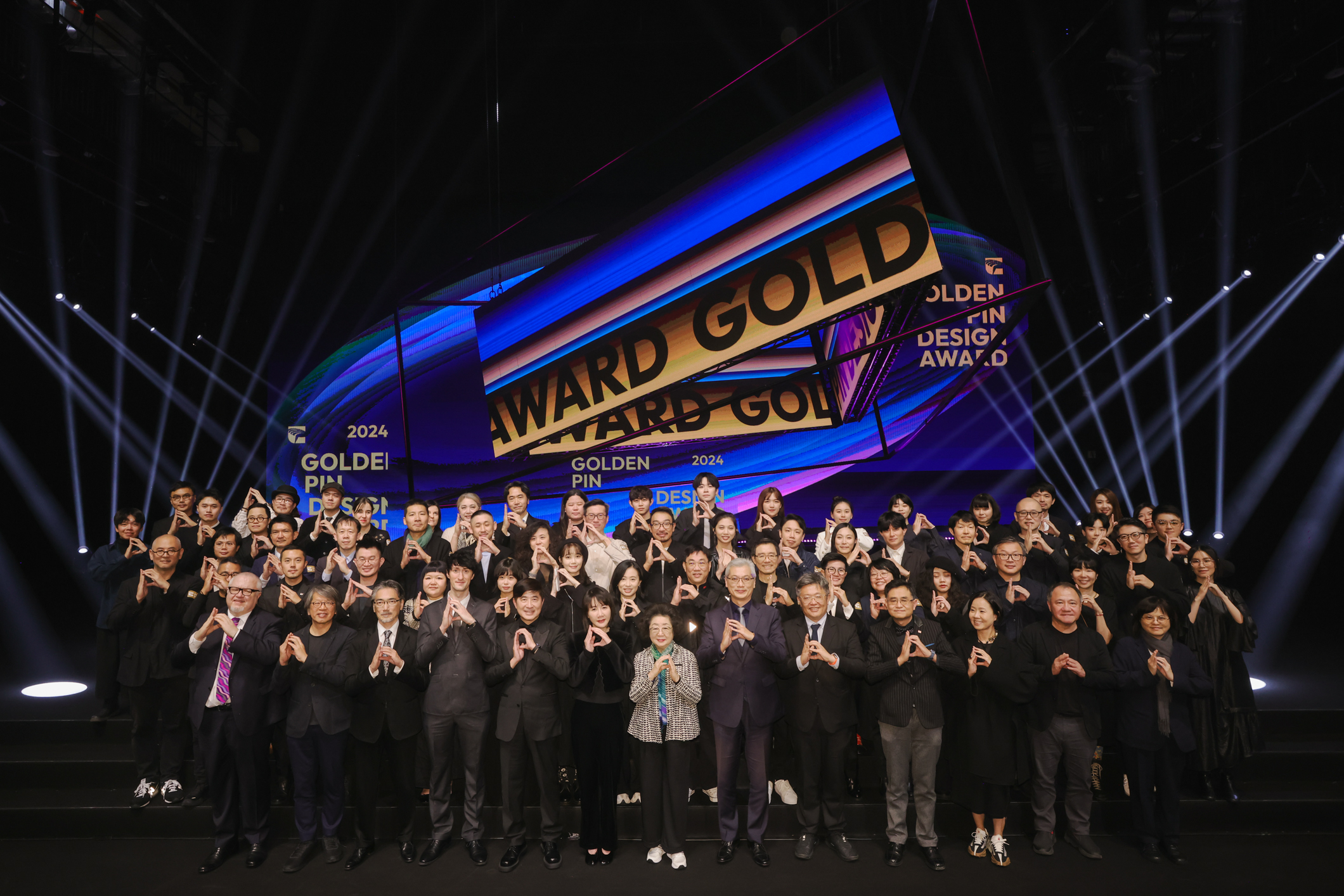
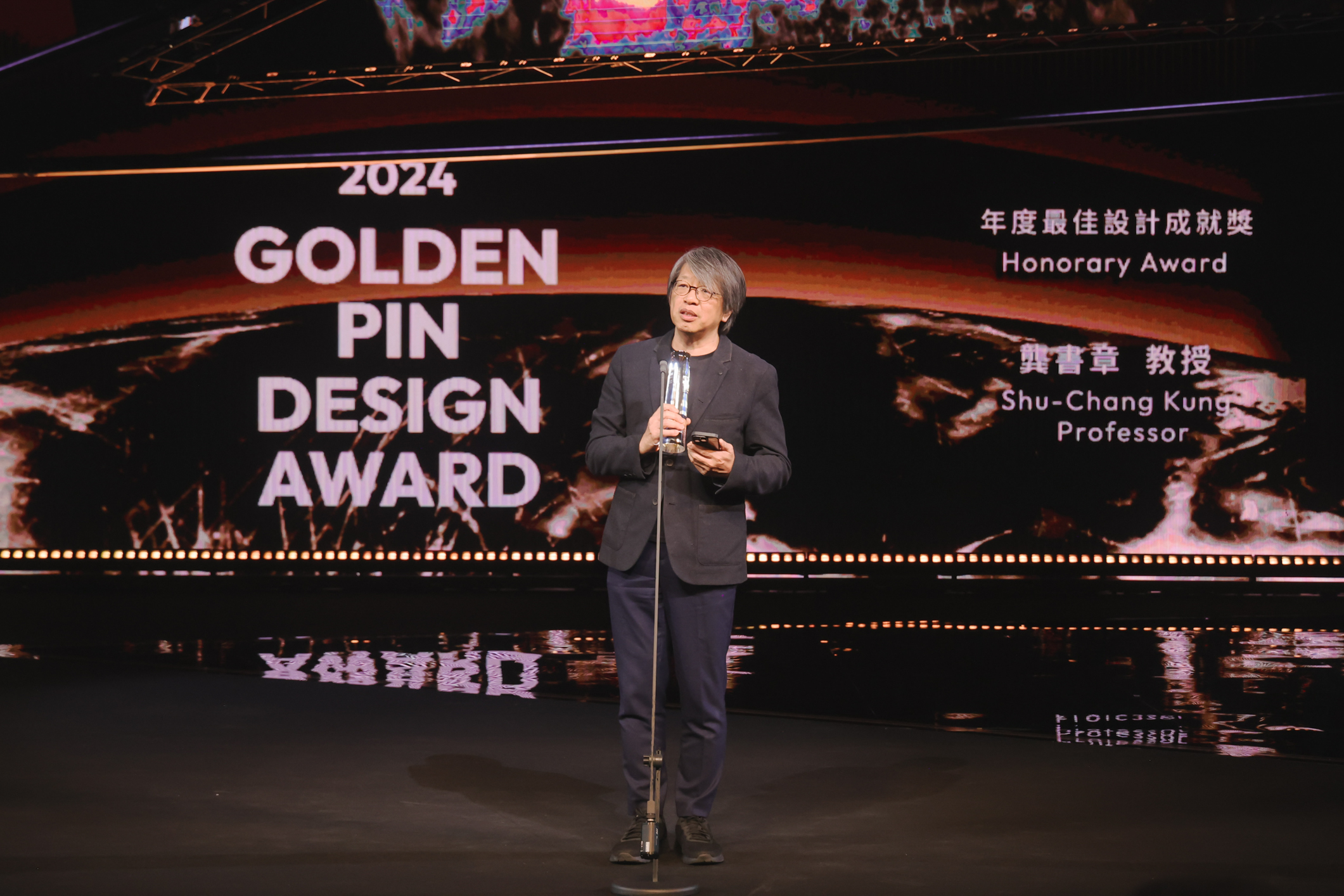 This year’s “Honorary Award” was presented to Professor Shu Chang Kung from the Graduate Institute of Architecture at National Yang Ming Chiao Tung University, in recognition of his longstanding contributions to advancing design aesthetics and nurturing design talent in Taiwan. Golden Pin Design Award 2024: Highlighting Sustainability, Public Service Innovation, and Social Inclusion The 2024 Golden Pin Design Award recognized 642 winning works with the Golden Pin Design Mark across four categories. From these, 138 finalists were shortlisted for the prestigious Best Design Award, with 32 ultimately receiving the honor. The winners include 10 works in Product Design, 7 in Communication Design, 10 in Spatial Design, and 5 in Integration Design category.
This year’s “Honorary Award” was presented to Professor Shu Chang Kung from the Graduate Institute of Architecture at National Yang Ming Chiao Tung University, in recognition of his longstanding contributions to advancing design aesthetics and nurturing design talent in Taiwan. Golden Pin Design Award 2024: Highlighting Sustainability, Public Service Innovation, and Social Inclusion The 2024 Golden Pin Design Award recognized 642 winning works with the Golden Pin Design Mark across four categories. From these, 138 finalists were shortlisted for the prestigious Best Design Award, with 32 ultimately receiving the honor. The winners include 10 works in Product Design, 7 in Communication Design, 10 in Spatial Design, and 5 in Integration Design category. 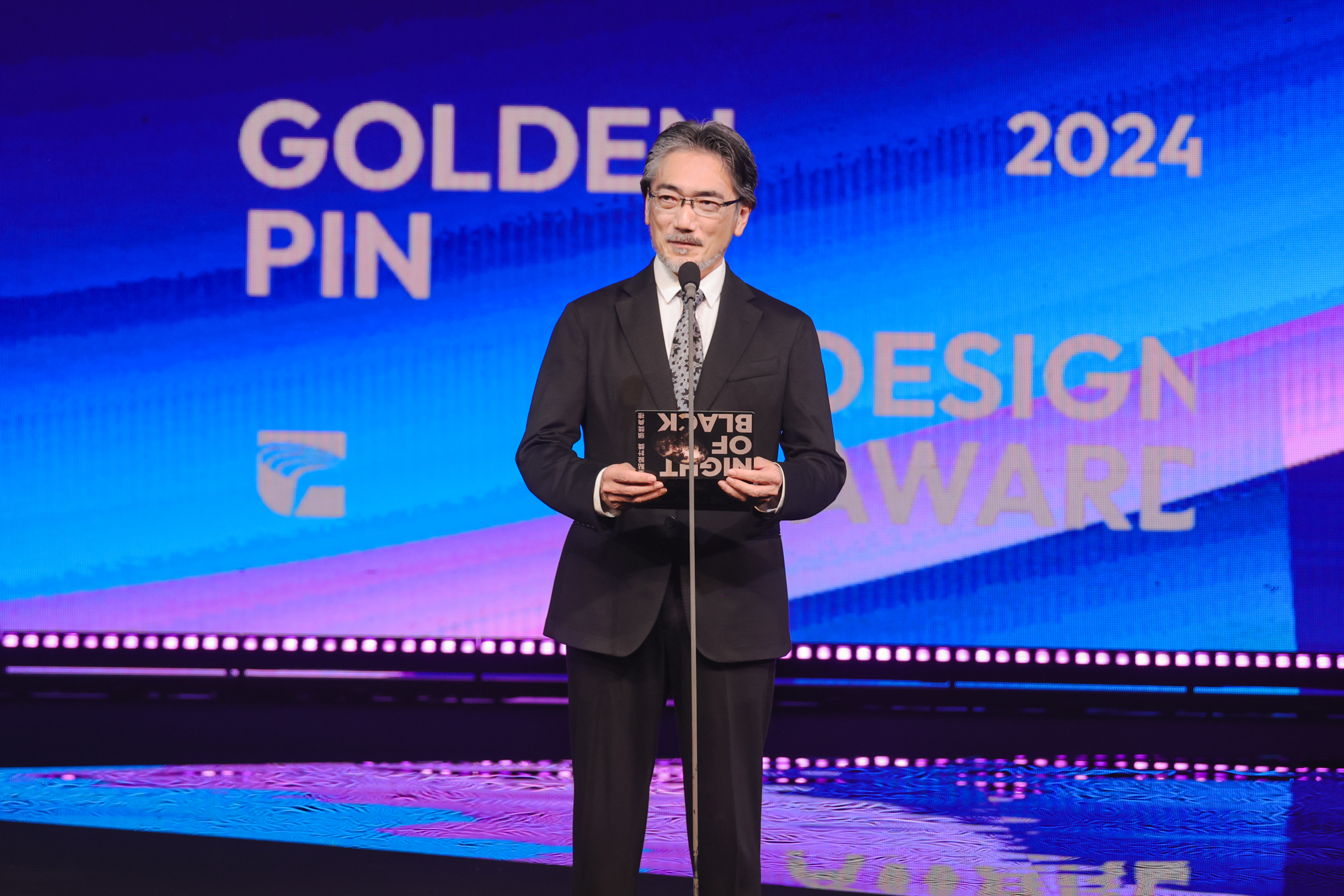 Final selection jury member Shigenori Asakura, President of Japan’s GK Industrial Design, emphasized that the award-winning works stand out for their ability to convey meaningful and powerful messages to both users and creators. He noted that these works not only enrich industries, society, and daily life but also embody forward-looking vision and exceptional design quality—key criteria that guided the jury’s decisions. This year’s winners showcase remarkable achievements in innovative applications, sustainability, social inclusion, and aesthetic diversity:
Final selection jury member Shigenori Asakura, President of Japan’s GK Industrial Design, emphasized that the award-winning works stand out for their ability to convey meaningful and powerful messages to both users and creators. He noted that these works not only enrich industries, society, and daily life but also embody forward-looking vision and exceptional design quality—key criteria that guided the jury’s decisions. This year’s winners showcase remarkable achievements in innovative applications, sustainability, social inclusion, and aesthetic diversity:
- Product Design Category
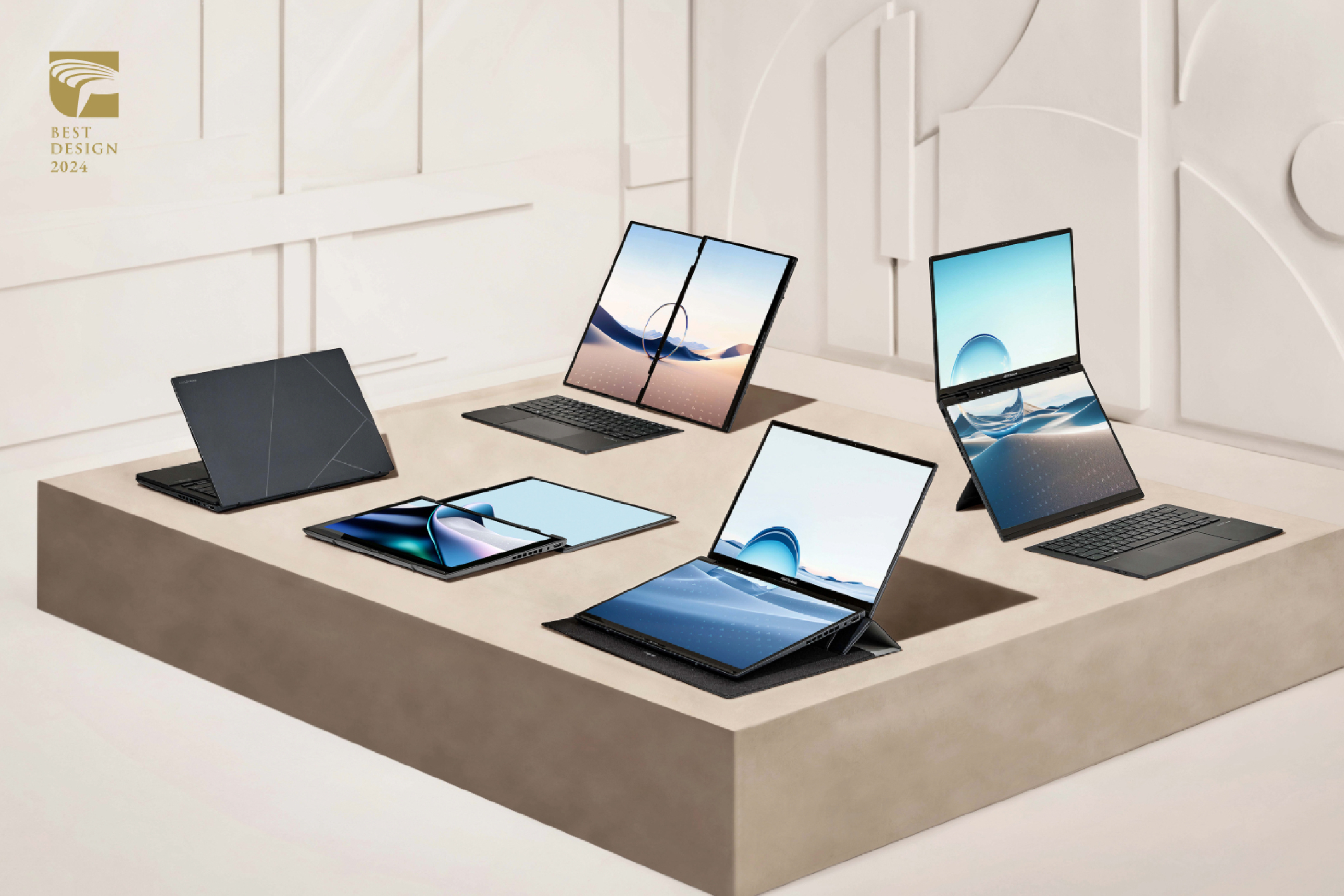
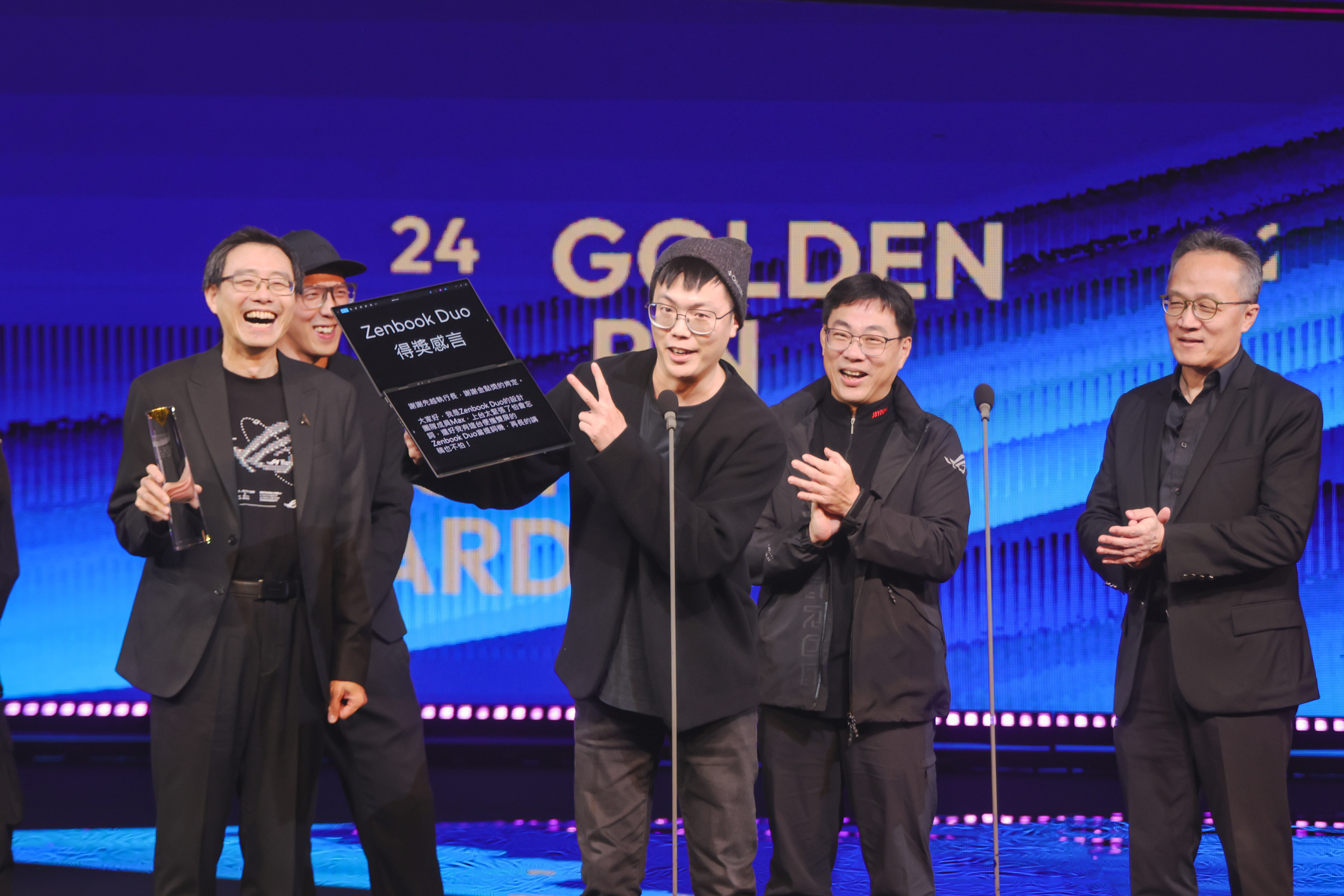 Taiwanese companies stood out with groundbreaking innovations. ASUSTek COMPUTER Inc. impressed with its dual-screen laptop, “ASUS Zenbook Duo (2024),” praised for its sleek design and exceptional hardware-software integration. Pegatron’s “ARMO – Emotion Gaming Handle” redefined gaming interaction by combining sensory technology and AI. “TEKarrc,” an elegant and IoT-enabled height-adjustable desk from TiMOTION Technology, highlighted technical prowess, while afterain design studio’s “Election Aesthetics: Voting Booth,” developed for Taiwan’s Central Election Commission, balanced budgetary constraints with enhanced safety, stability, and aesthetics.
Taiwanese companies stood out with groundbreaking innovations. ASUSTek COMPUTER Inc. impressed with its dual-screen laptop, “ASUS Zenbook Duo (2024),” praised for its sleek design and exceptional hardware-software integration. Pegatron’s “ARMO – Emotion Gaming Handle” redefined gaming interaction by combining sensory technology and AI. “TEKarrc,” an elegant and IoT-enabled height-adjustable desk from TiMOTION Technology, highlighted technical prowess, while afterain design studio’s “Election Aesthetics: Voting Booth,” developed for Taiwan’s Central Election Commission, balanced budgetary constraints with enhanced safety, stability, and aesthetics. 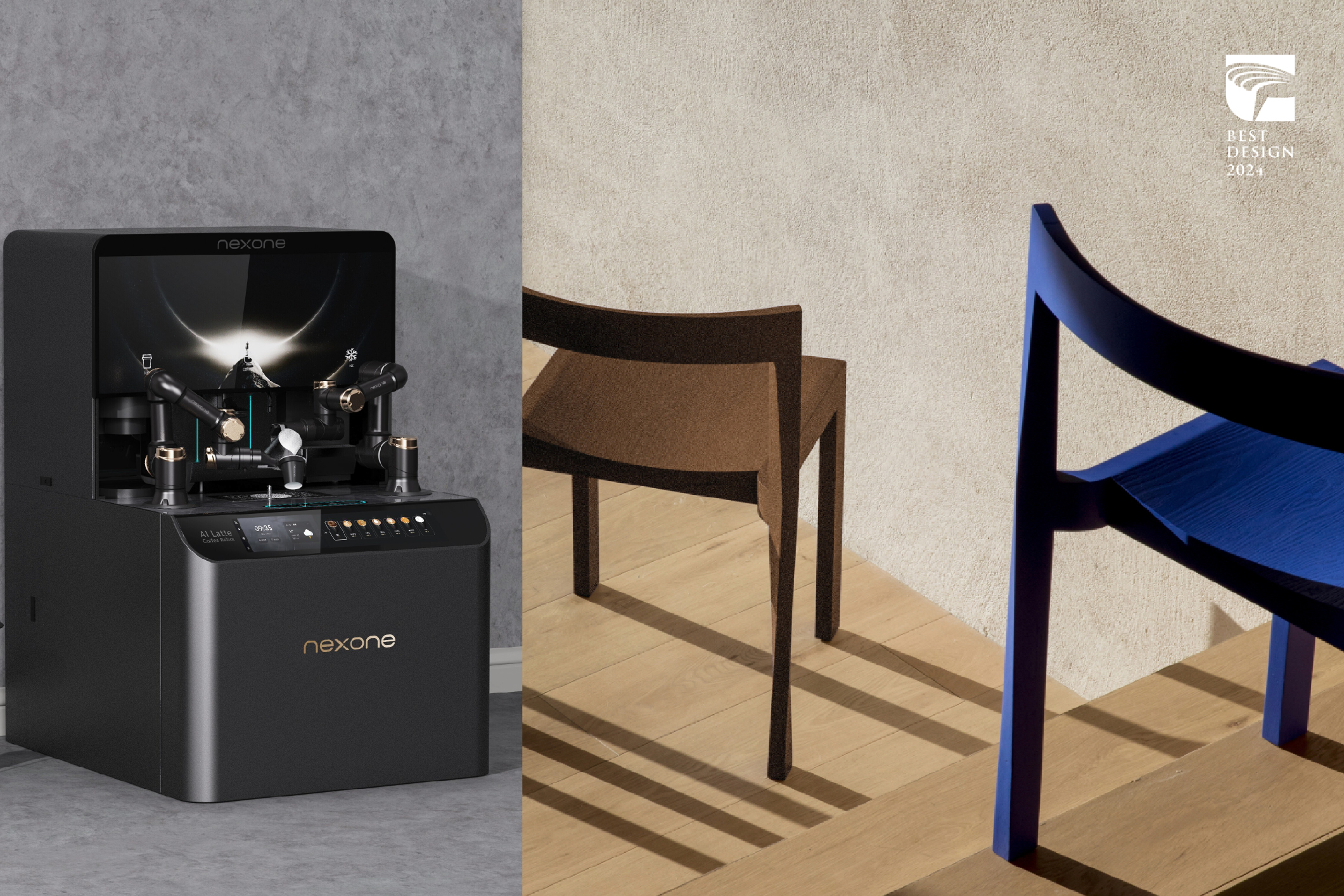
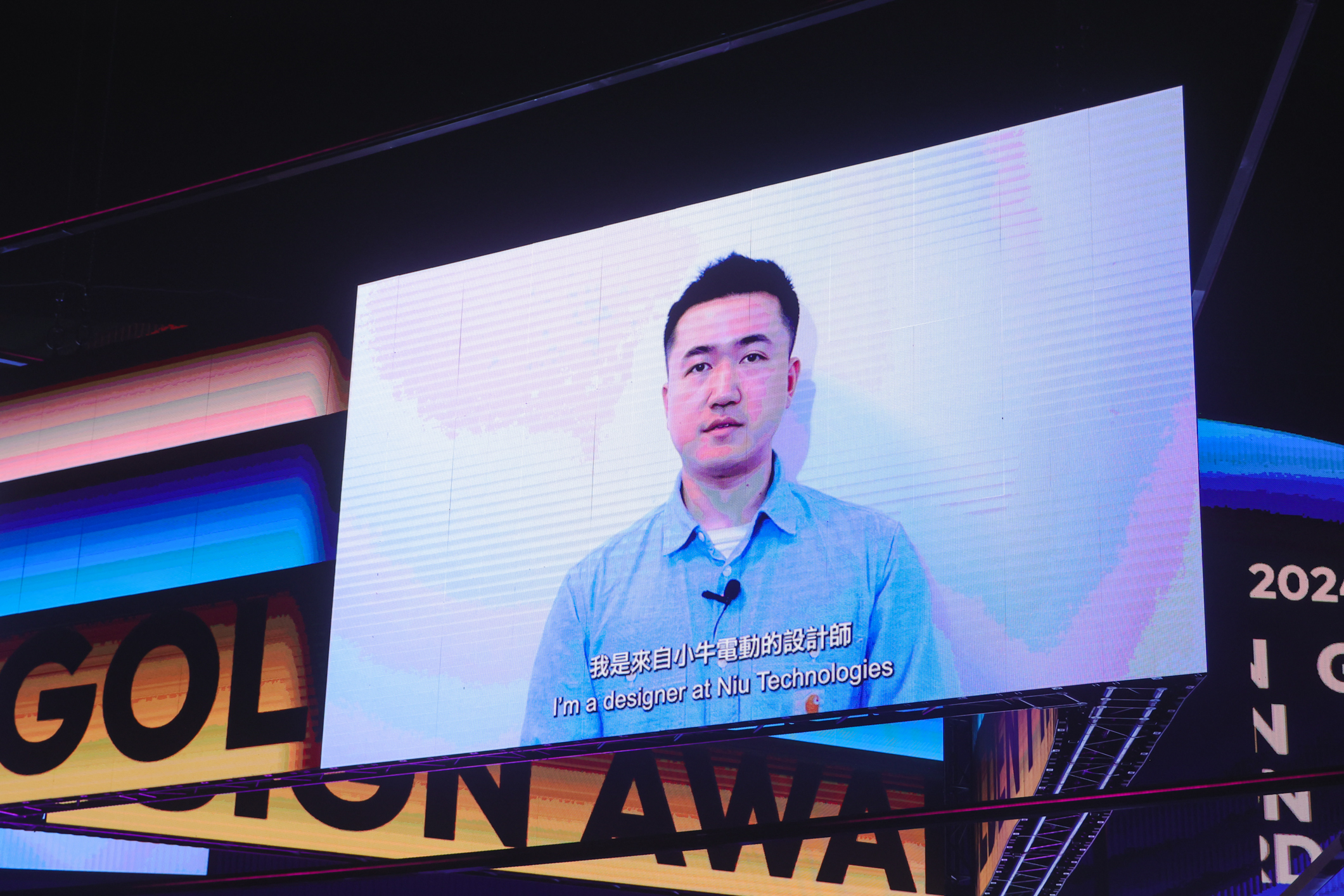 From China, Foshan Ruiyi Intelligent Technology introduced the “nexone AI Latte Coffee Robot,” designed to boost efficiency and personalization in the beverage industry. Beijing Niu Technology earned recognition for its high-performance electric off-road bike, “XQi3,” and Shanghai Ziin Home Technology won with the eco-friendly “Mobius Chair – ECO,” crafted from recycled coffee grounds and featuring an innovative structure to address storage needs.
From China, Foshan Ruiyi Intelligent Technology introduced the “nexone AI Latte Coffee Robot,” designed to boost efficiency and personalization in the beverage industry. Beijing Niu Technology earned recognition for its high-performance electric off-road bike, “XQi3,” and Shanghai Ziin Home Technology won with the eco-friendly “Mobius Chair – ECO,” crafted from recycled coffee grounds and featuring an innovative structure to address storage needs. 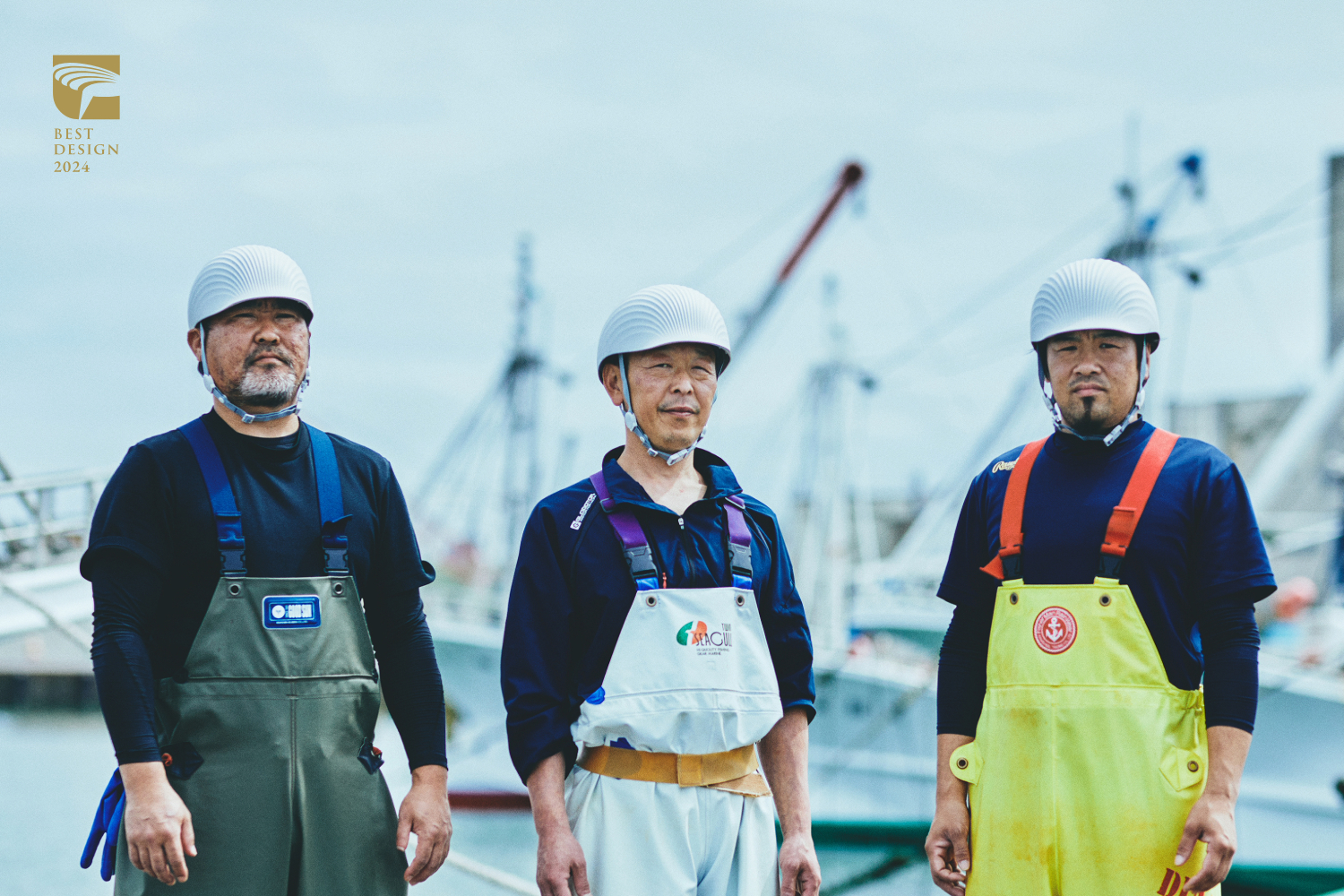

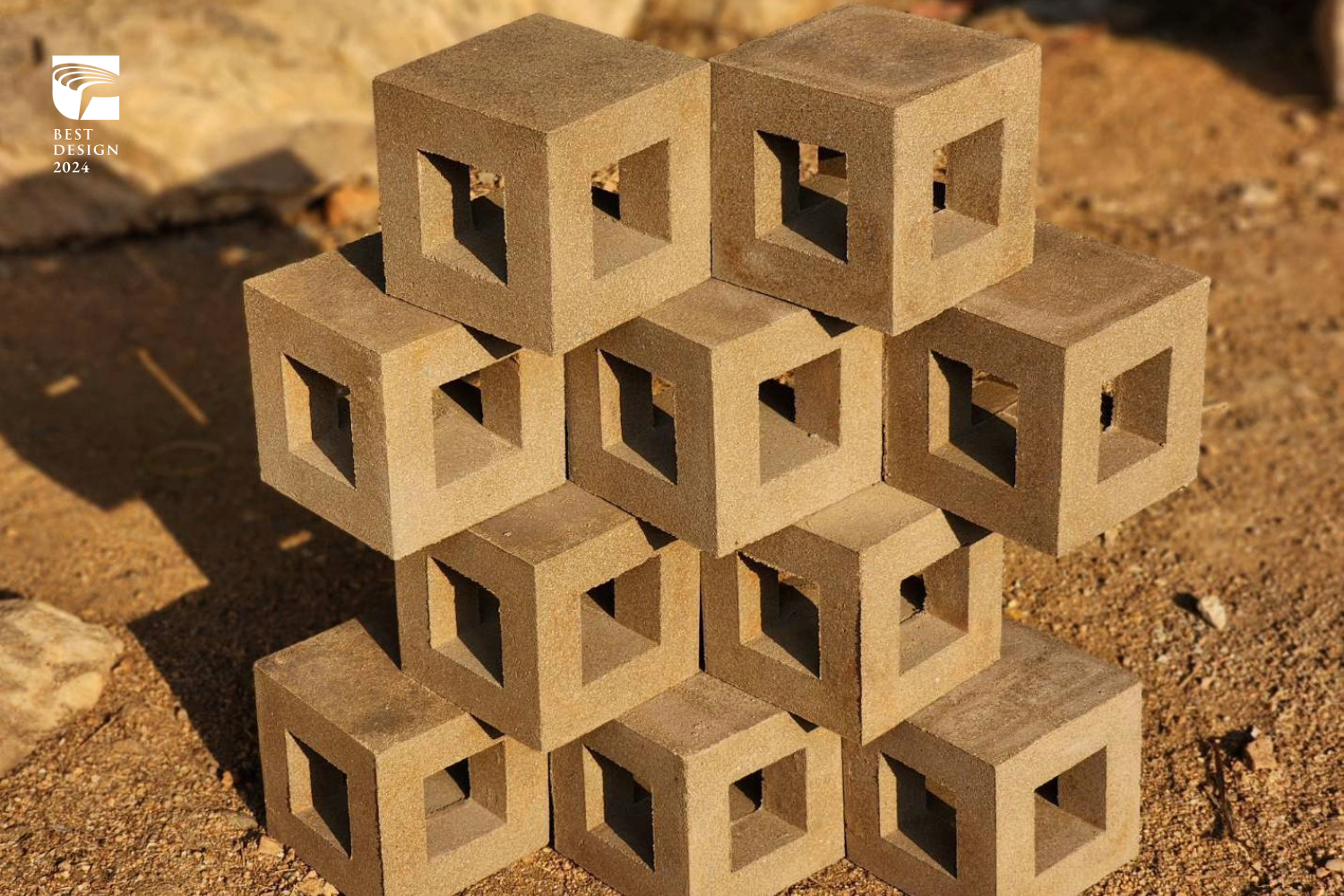
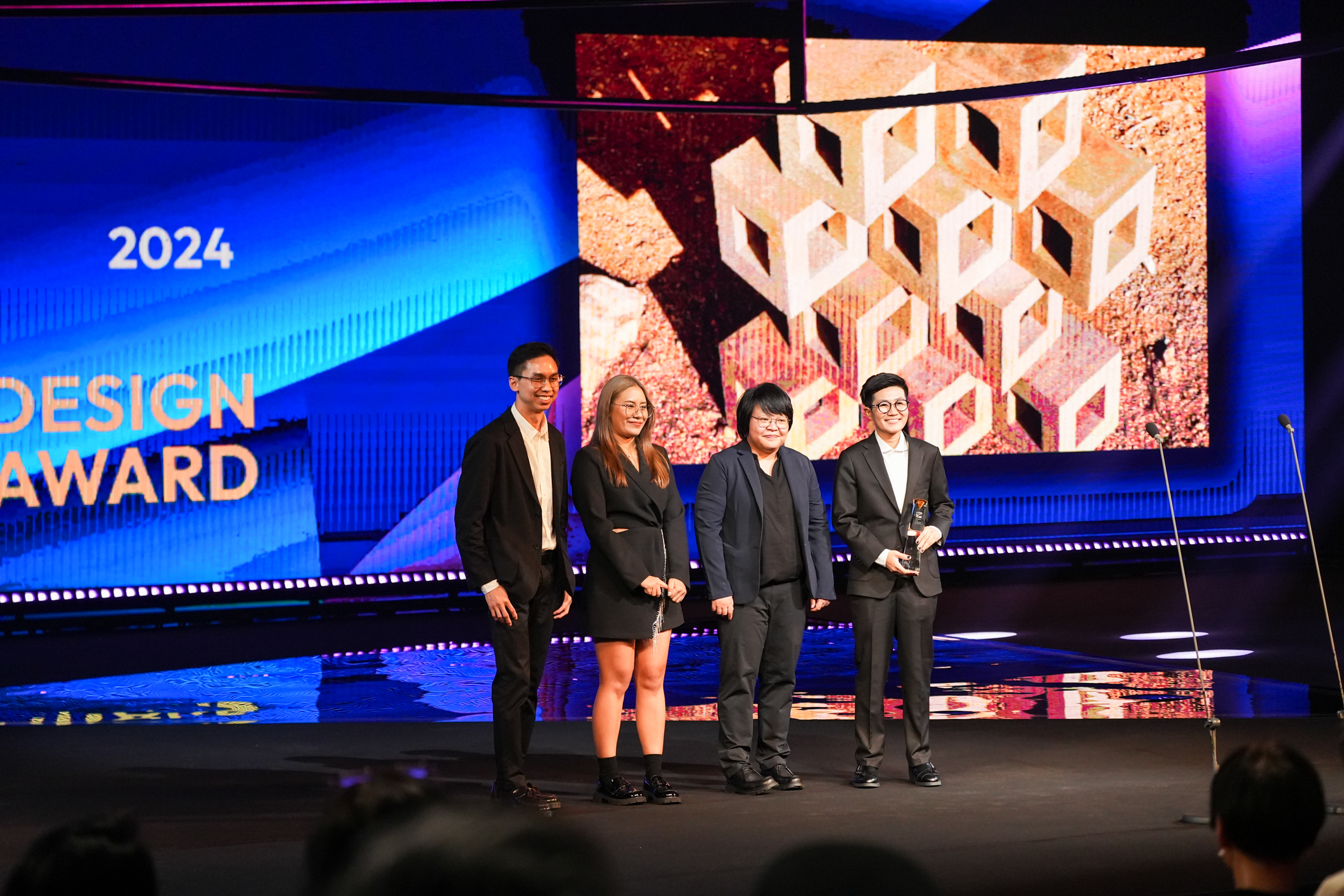 Japanese winners included TBWA\HAKUHODO’s “SHELLMET,” a safety helmet made from discarded Hokkaido scallop shells, and Chi Design’s “Chiritori X Houki 2.0,” a sweeping set merging Taiwanese manufacturing with Japanese craftsmanship. Thailand also made its mark with mflex factory’s “Ventilation Block – Air Flow (BTL 201),” a modern reinterpretation of traditional building materials with innovative potential.
Japanese winners included TBWA\HAKUHODO’s “SHELLMET,” a safety helmet made from discarded Hokkaido scallop shells, and Chi Design’s “Chiritori X Houki 2.0,” a sweeping set merging Taiwanese manufacturing with Japanese craftsmanship. Thailand also made its mark with mflex factory’s “Ventilation Block – Air Flow (BTL 201),” a modern reinterpretation of traditional building materials with innovative potential.
- Communication Design Category
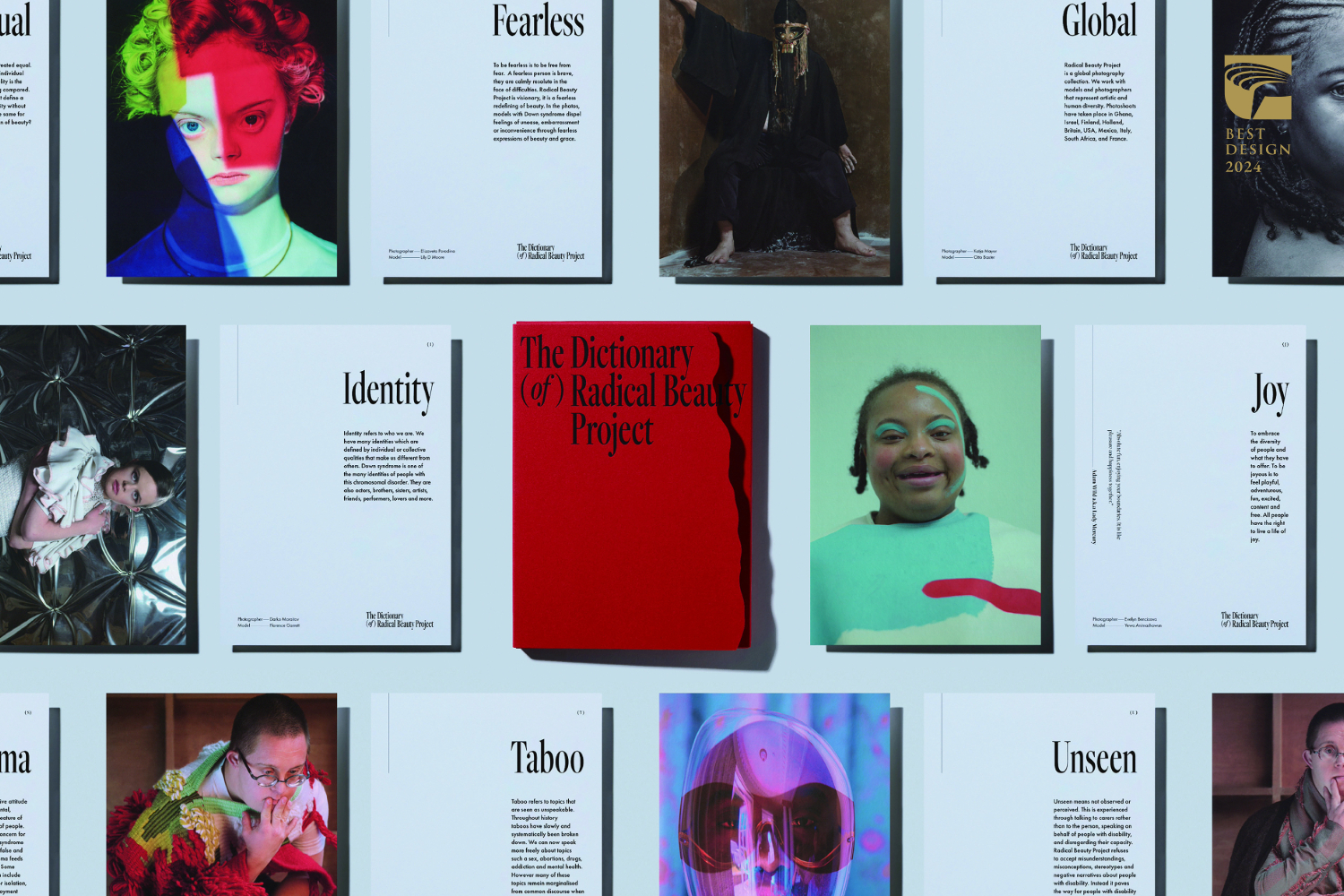
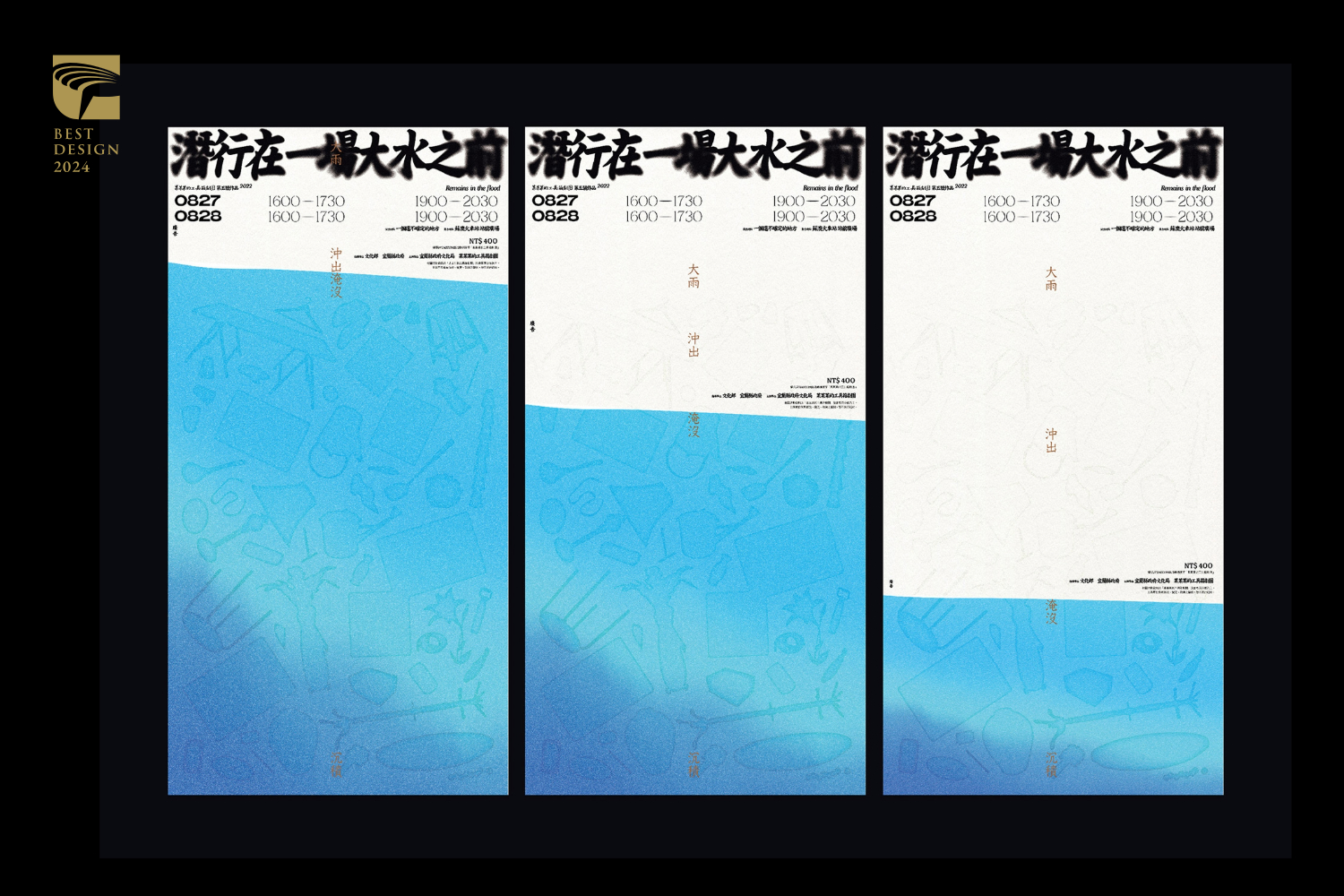
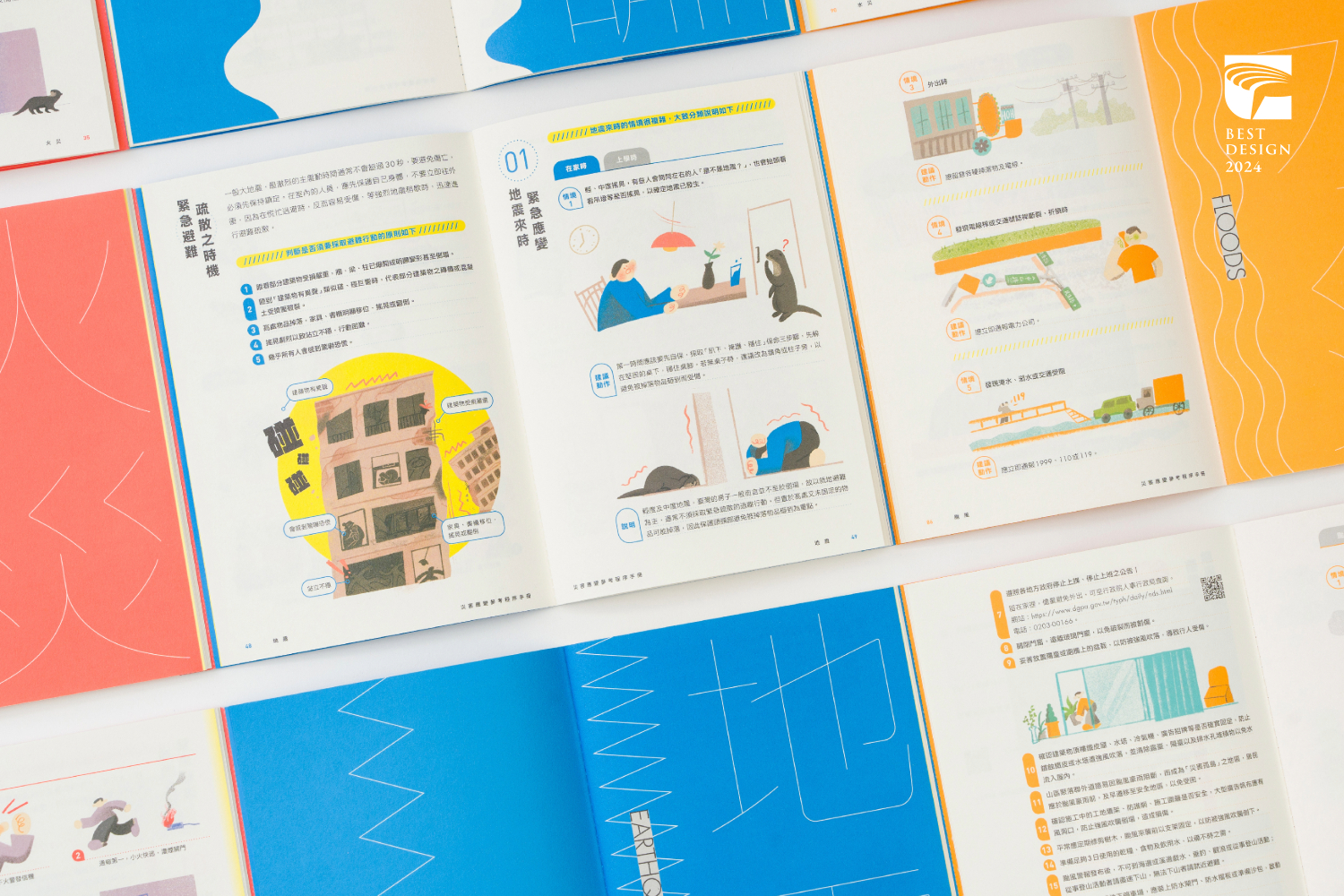
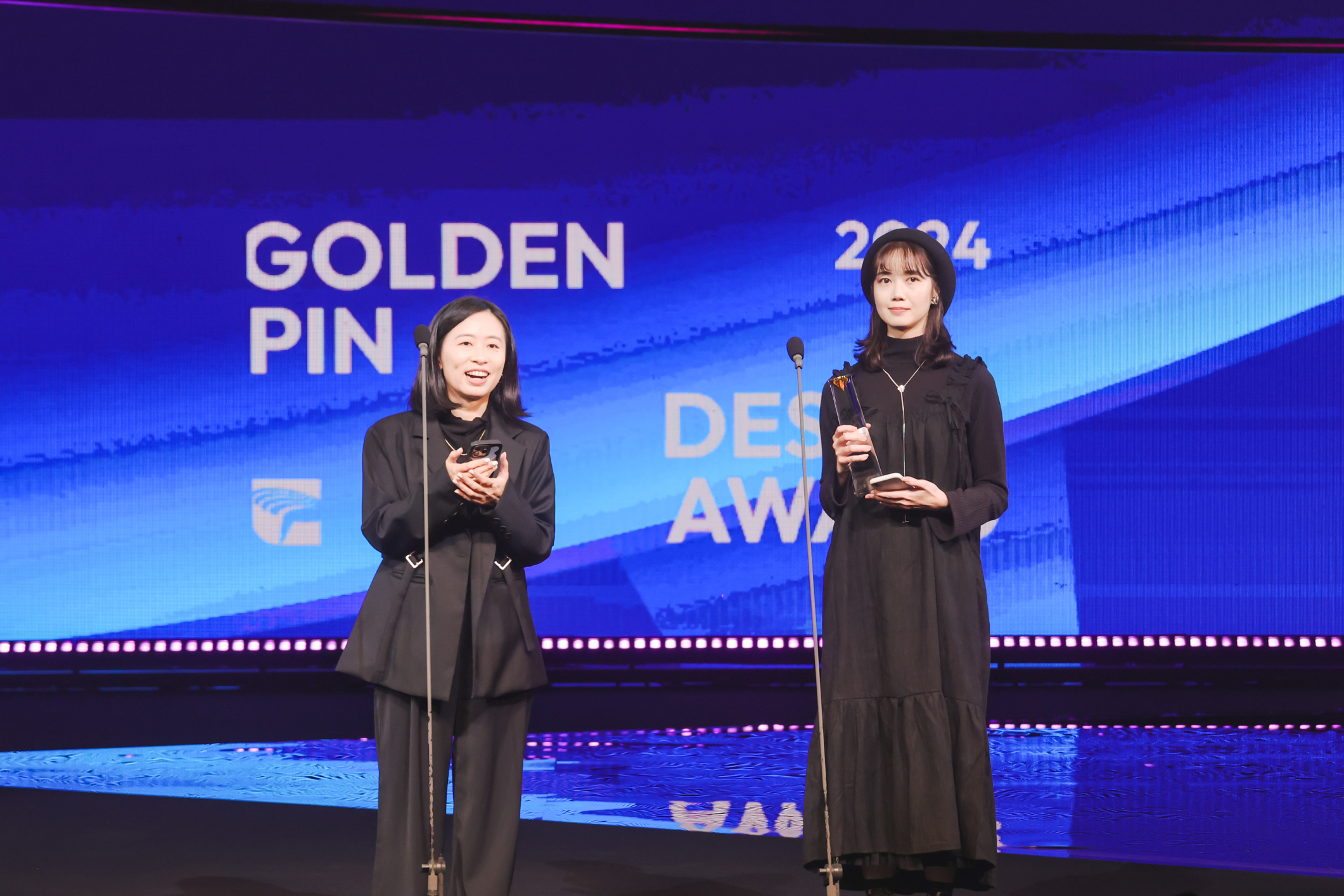 The Communication Design category featured outstanding works that reflected deep cultural and social awareness. Among the winners, British micro-organization Culture Device collaborated with narrative studio on “The Dictionary (of) Radical Beauty Project,” a visually striking catalog capturing the creative work of models with Down syndrome and photographers, challenging conventional definitions of beauty. Emerging team Jiidii won for their poster, “Remains in the Flood,” which used evocative text and imagery to convey a community’s memory of flooding with thought-provoking design. JIASUI STUDIO & Aestheticell Association received praise for “Disaster Risk Response Program Manual,” created for Taiwan’s Ministry of Education. The manual’s binding and color-coding offered clear and effective communication of disaster scenarios and response strategies, earning high marks from the jury.
The Communication Design category featured outstanding works that reflected deep cultural and social awareness. Among the winners, British micro-organization Culture Device collaborated with narrative studio on “The Dictionary (of) Radical Beauty Project,” a visually striking catalog capturing the creative work of models with Down syndrome and photographers, challenging conventional definitions of beauty. Emerging team Jiidii won for their poster, “Remains in the Flood,” which used evocative text and imagery to convey a community’s memory of flooding with thought-provoking design. JIASUI STUDIO & Aestheticell Association received praise for “Disaster Risk Response Program Manual,” created for Taiwan’s Ministry of Education. The manual’s binding and color-coding offered clear and effective communication of disaster scenarios and response strategies, earning high marks from the jury. 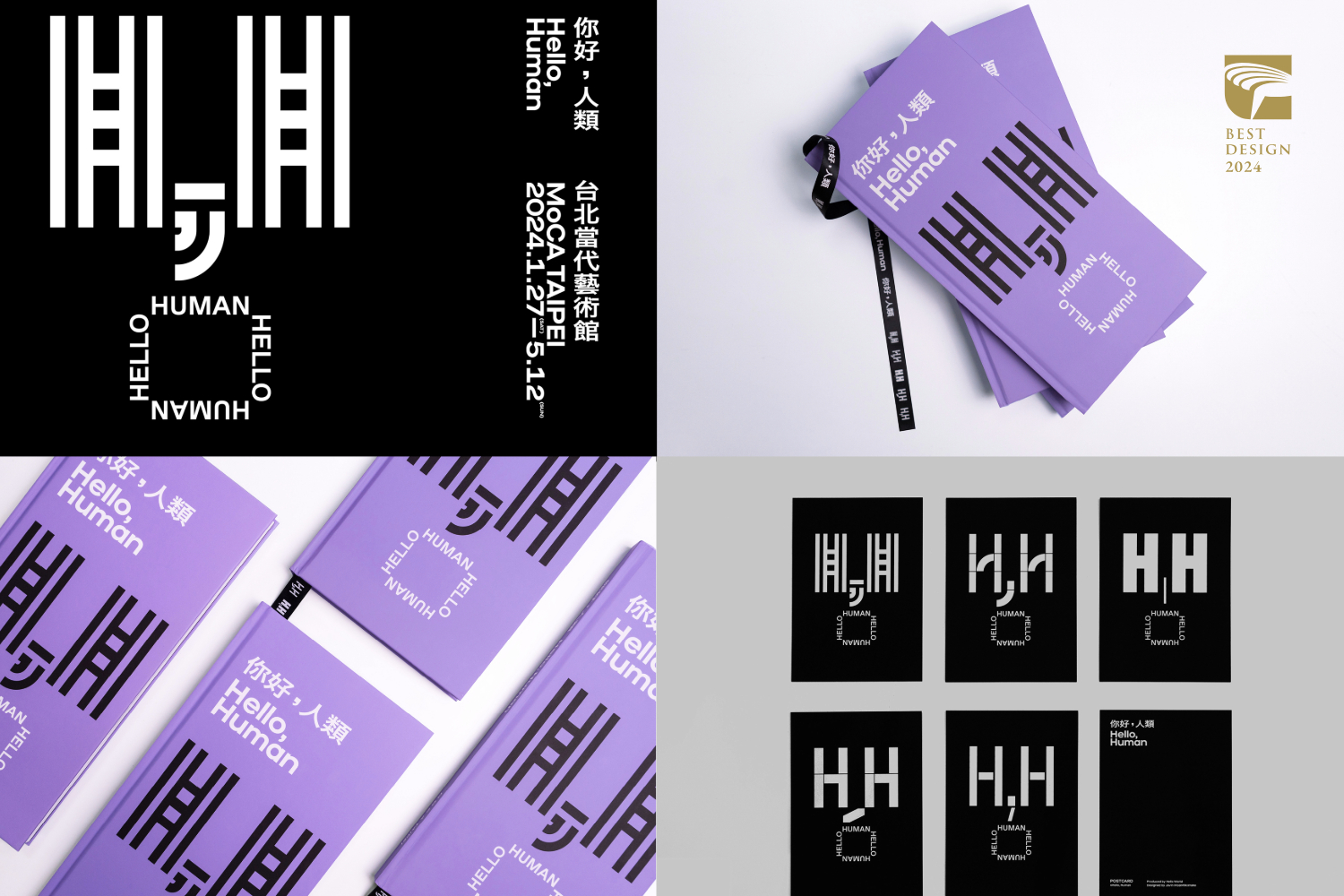
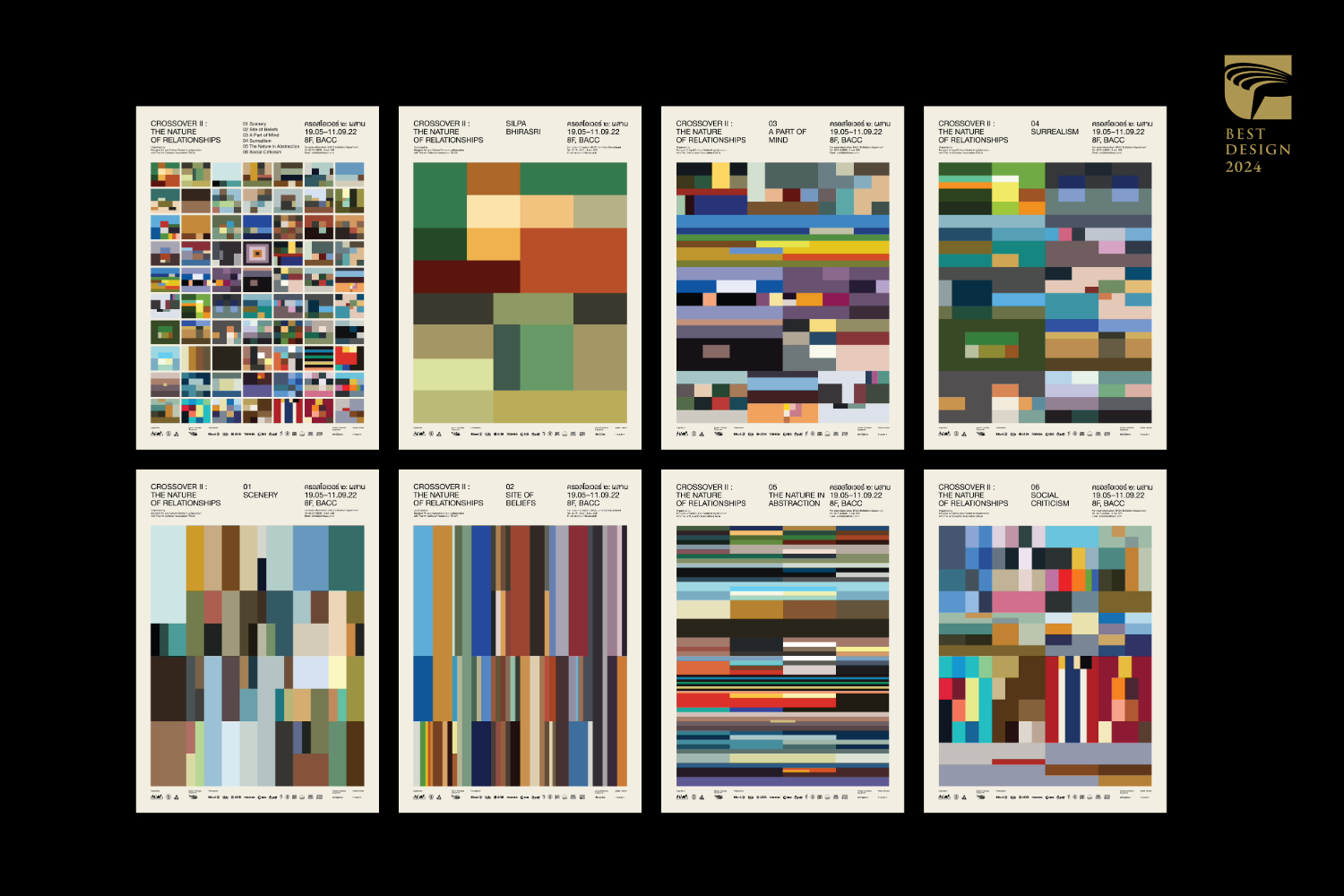 Exhibition visual design was another highlight. Hong Kong’s Milkxhake Studio explored the nuanced relationship between humans and AI in “Hello, Human!” while adj. everything captured the industrial heritage of New Taipei City with their creative interpretation in “@®©”. Thai designer Manita Songserm’s “Crossover II: The Nature of Relationships” employed a poetic approach to document the transformation of contemporary Thai art.
Exhibition visual design was another highlight. Hong Kong’s Milkxhake Studio explored the nuanced relationship between humans and AI in “Hello, Human!” while adj. everything captured the industrial heritage of New Taipei City with their creative interpretation in “@®©”. Thai designer Manita Songserm’s “Crossover II: The Nature of Relationships” employed a poetic approach to document the transformation of contemporary Thai art. 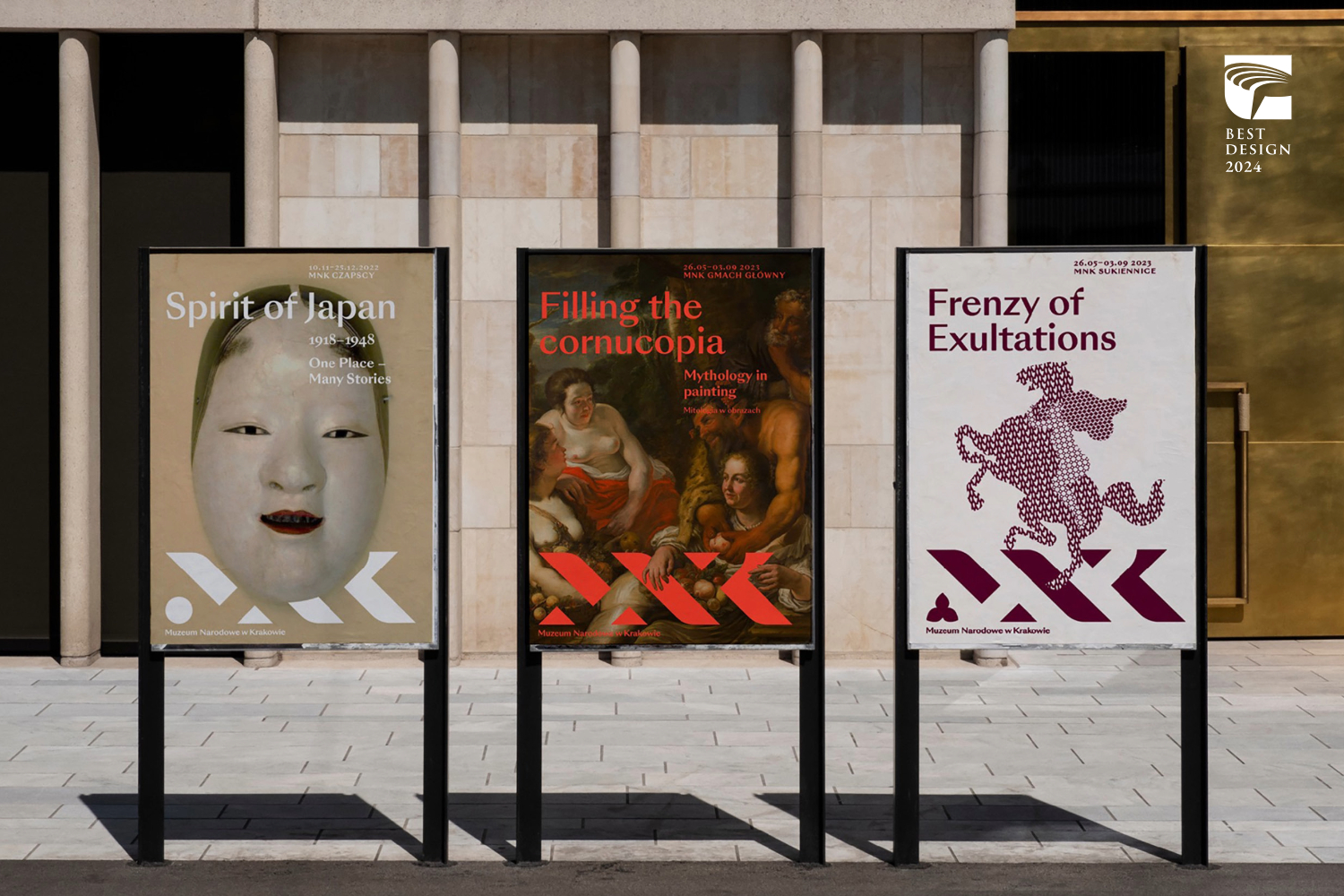
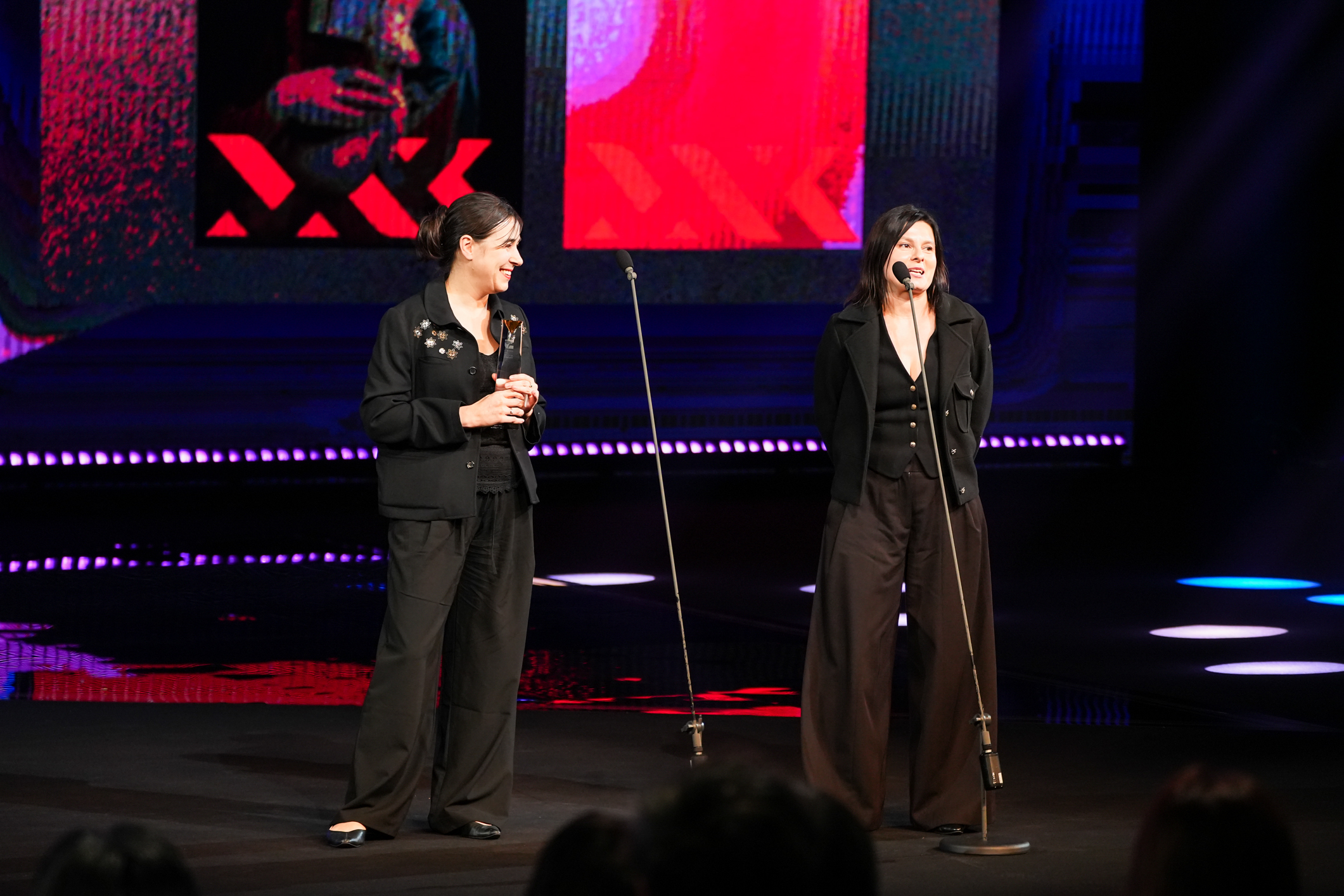 On the international front, Poland’s Podpunkt Studio won for the project “The National Museum in Kraków—brand identity.” Their elegant and versatile design harmonized diverse artistic styles while showcasing the museum’s rich collection, earning them a well-deserved award.
On the international front, Poland’s Podpunkt Studio won for the project “The National Museum in Kraków—brand identity.” Their elegant and versatile design harmonized diverse artistic styles while showcasing the museum’s rich collection, earning them a well-deserved award.
- Spatial Design Category
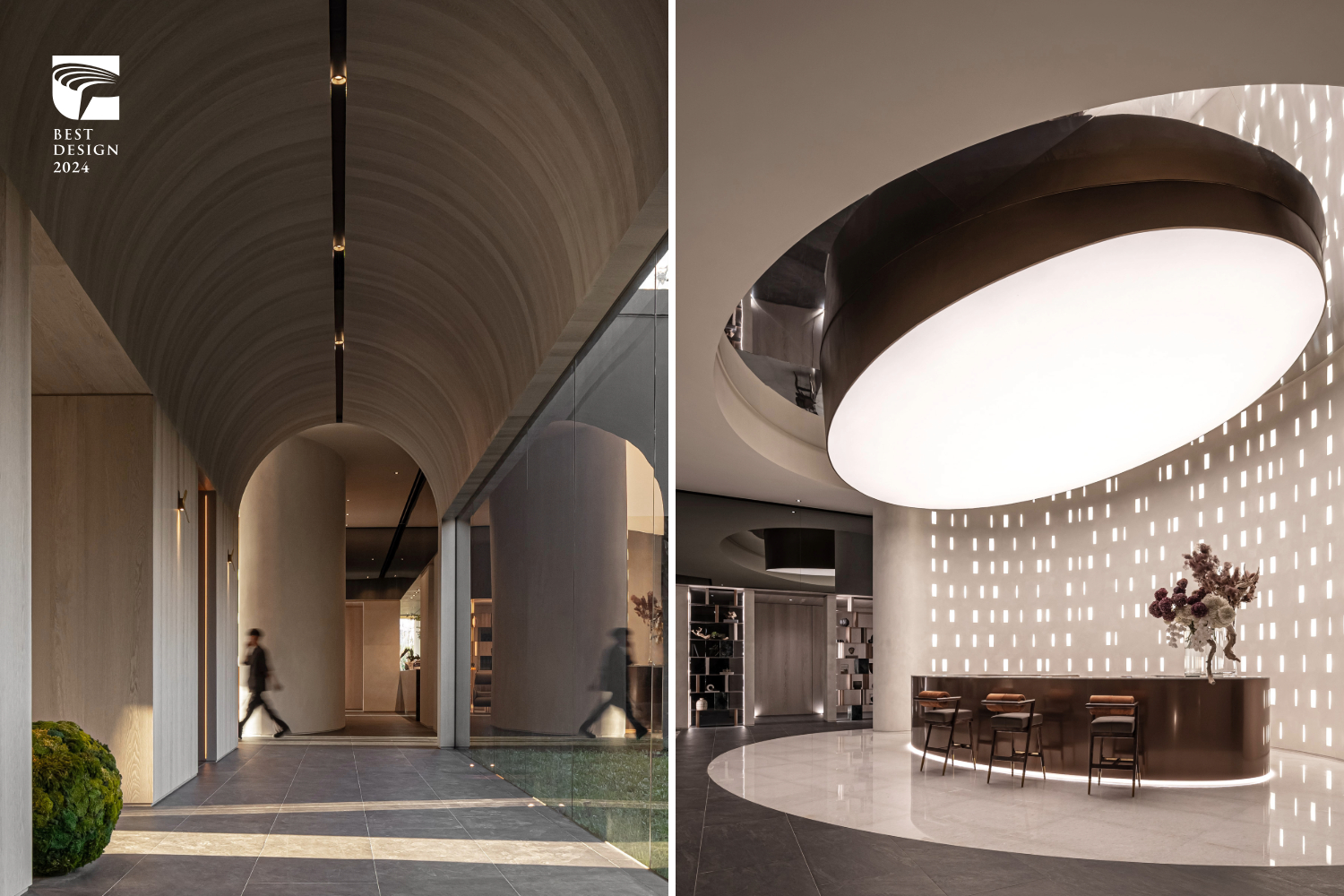
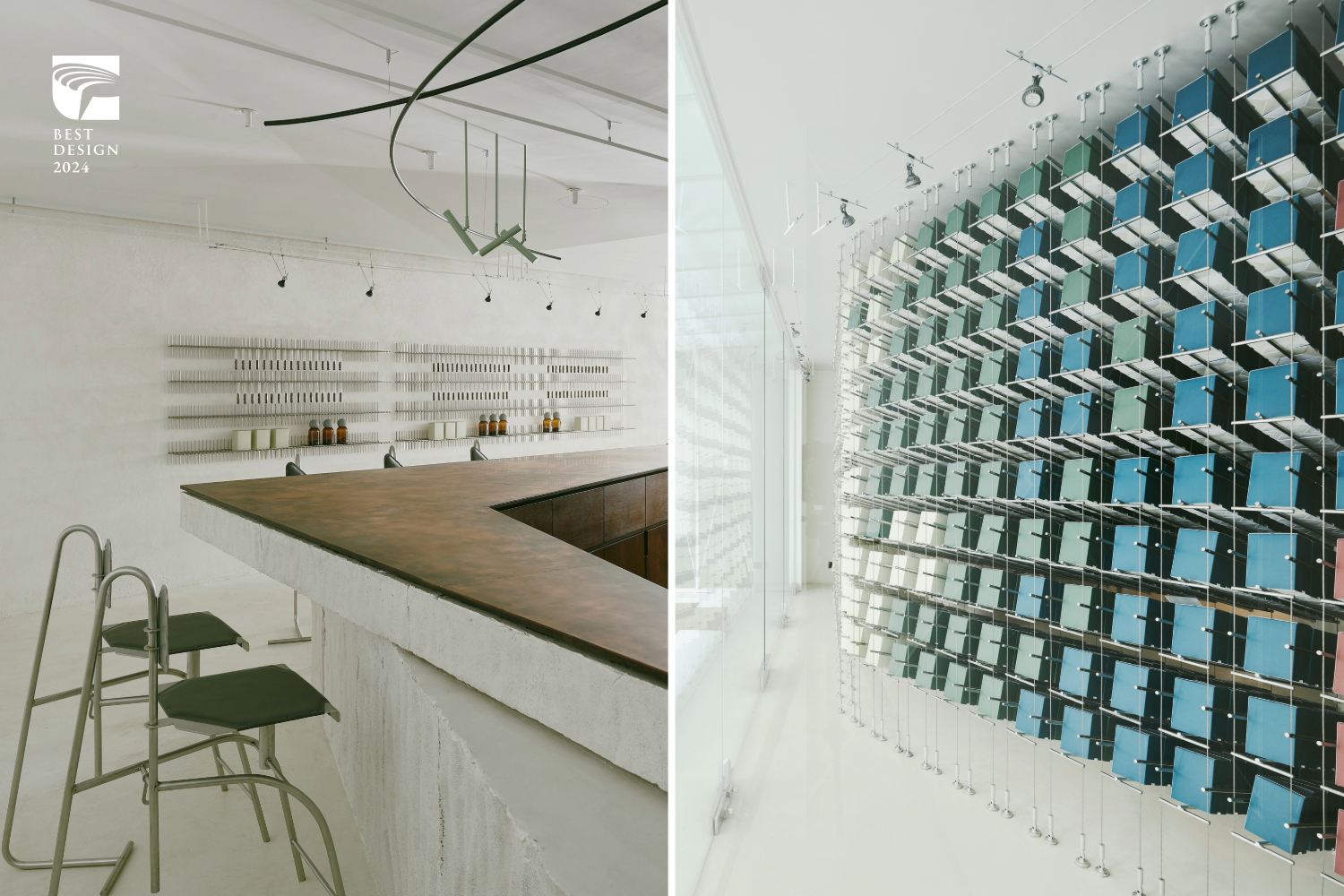
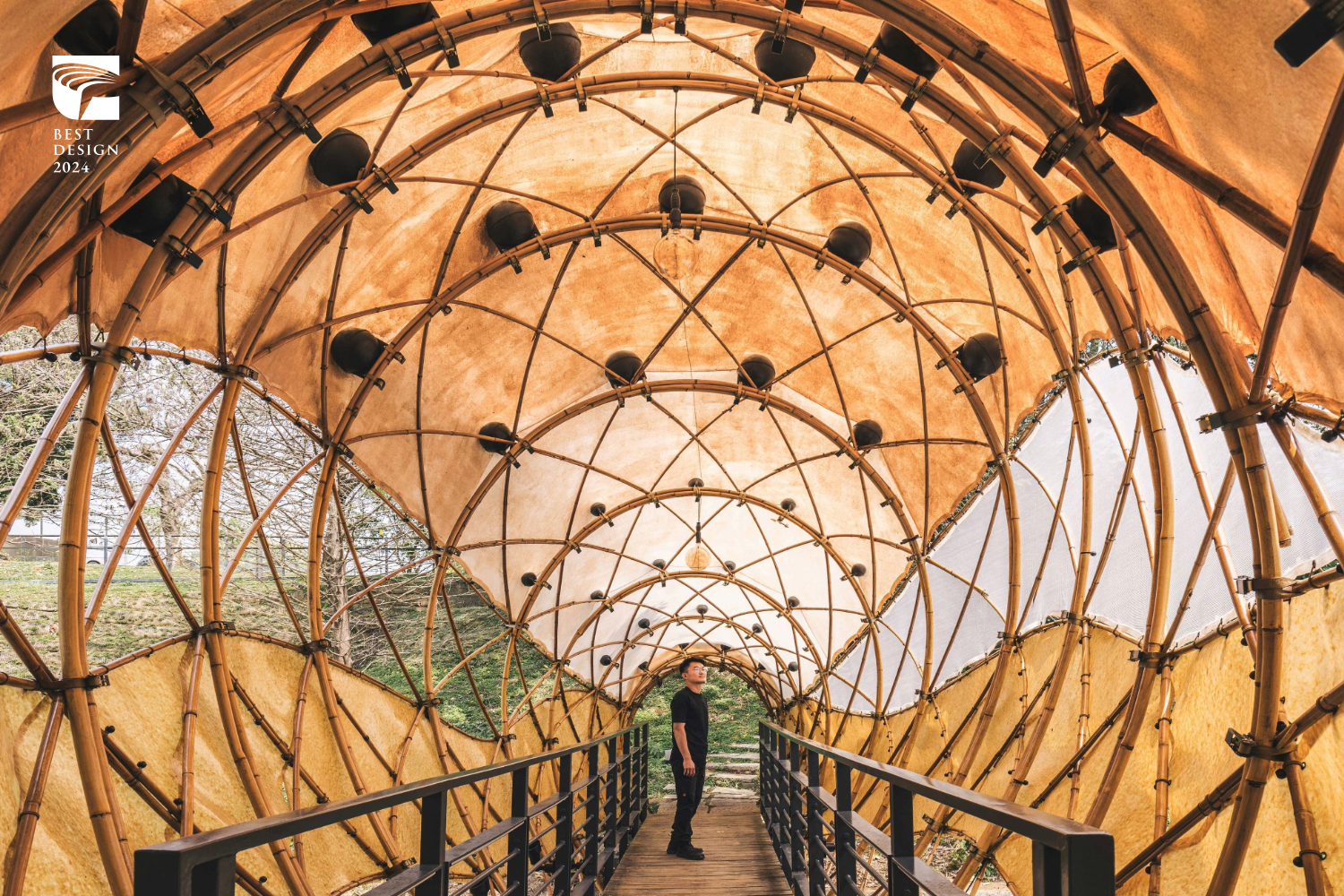 The winners in the Spatial Design category showcased a diverse array of innovative projects. From Taiwan, highlights included “THE JINRAY Experience Center” by One Work Design, and “(beanroom)” by Waterfrom Design, which seamlessly integrates brand value and sustainable practices. Forest-Wood Archi-Tect., a previous multiple award recipient, was recognized again for “Bridge Cocoon,” crafted with bamboo and unique construction techniques.
The winners in the Spatial Design category showcased a diverse array of innovative projects. From Taiwan, highlights included “THE JINRAY Experience Center” by One Work Design, and “(beanroom)” by Waterfrom Design, which seamlessly integrates brand value and sustainable practices. Forest-Wood Archi-Tect., a previous multiple award recipient, was recognized again for “Bridge Cocoon,” crafted with bamboo and unique construction techniques. 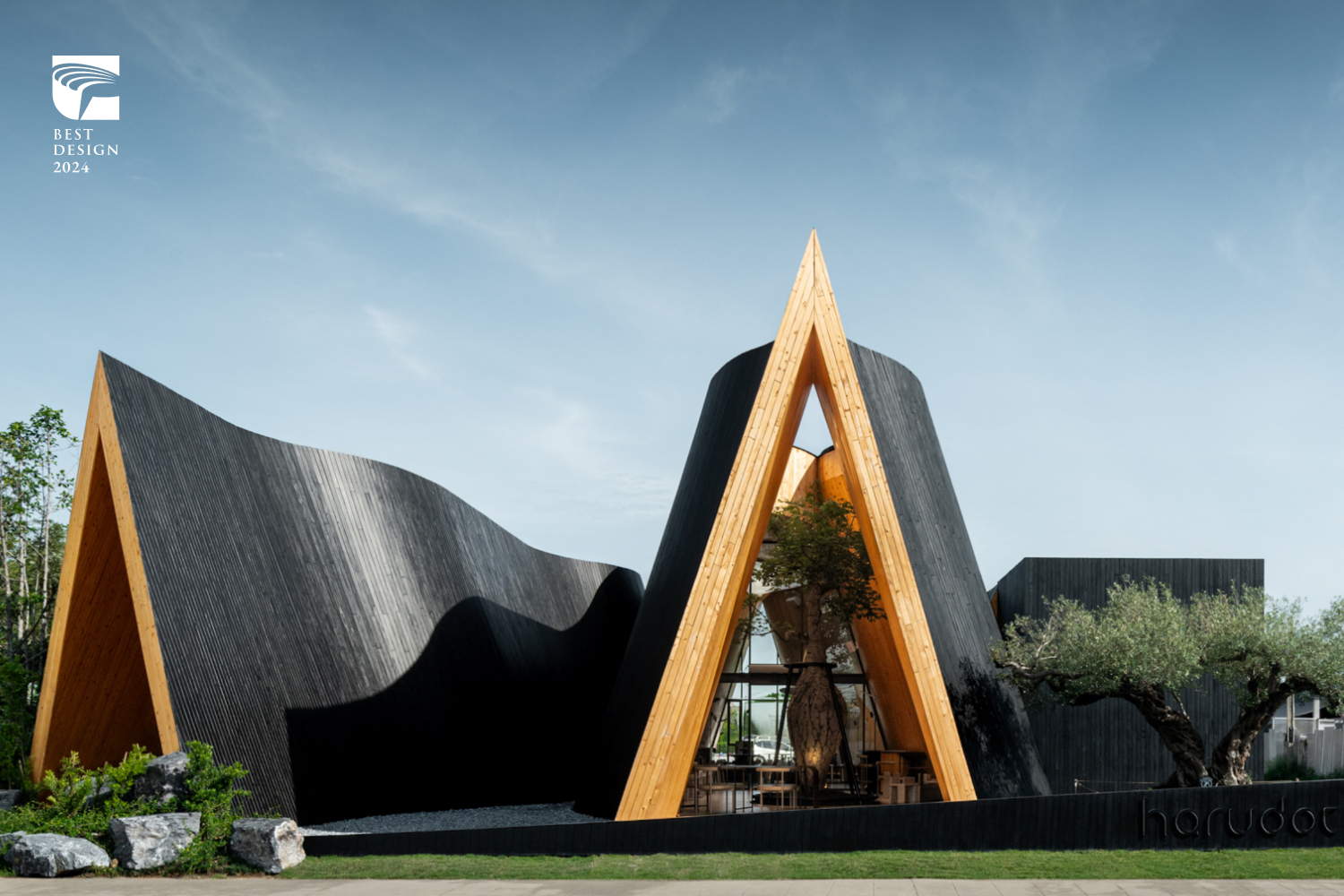
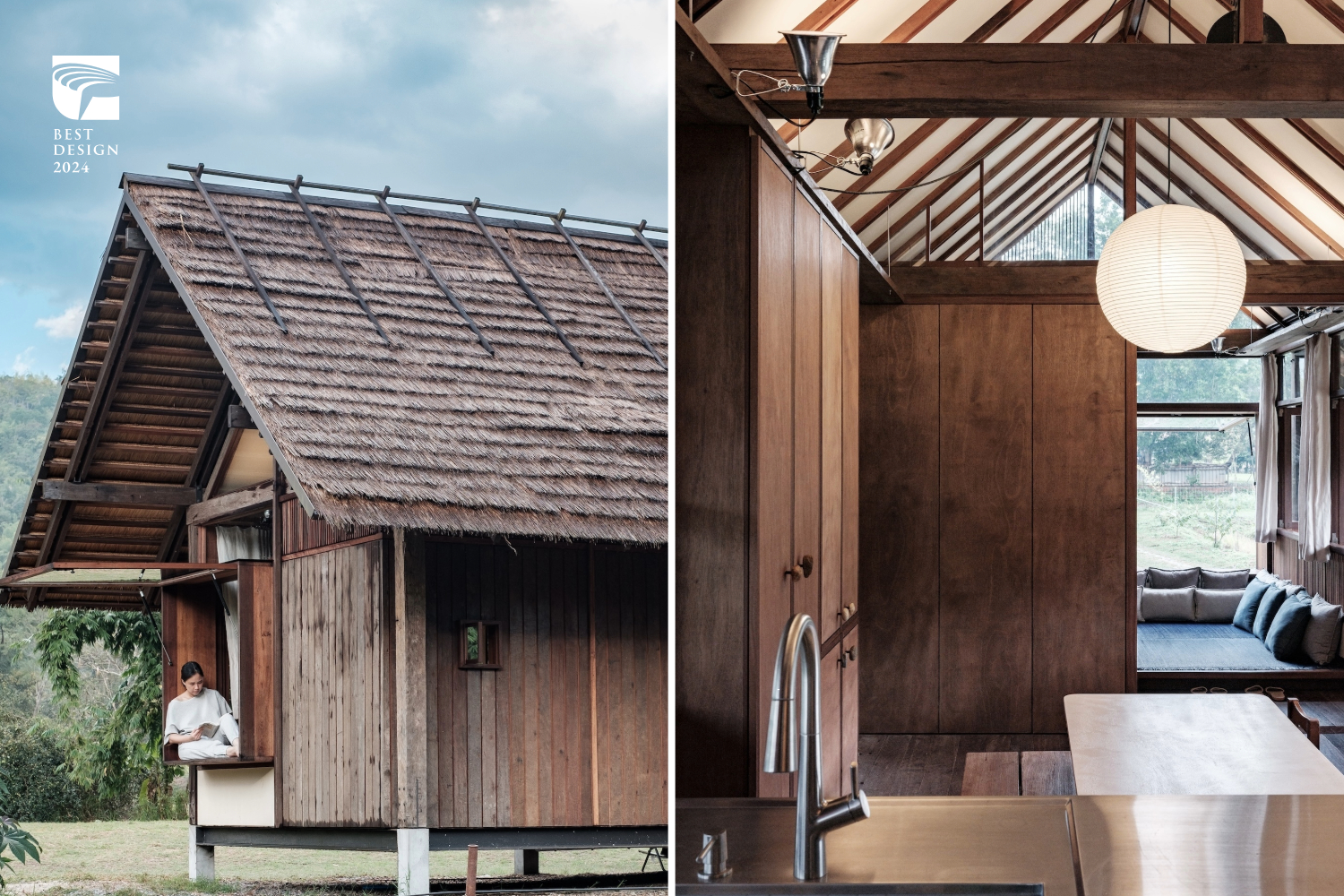
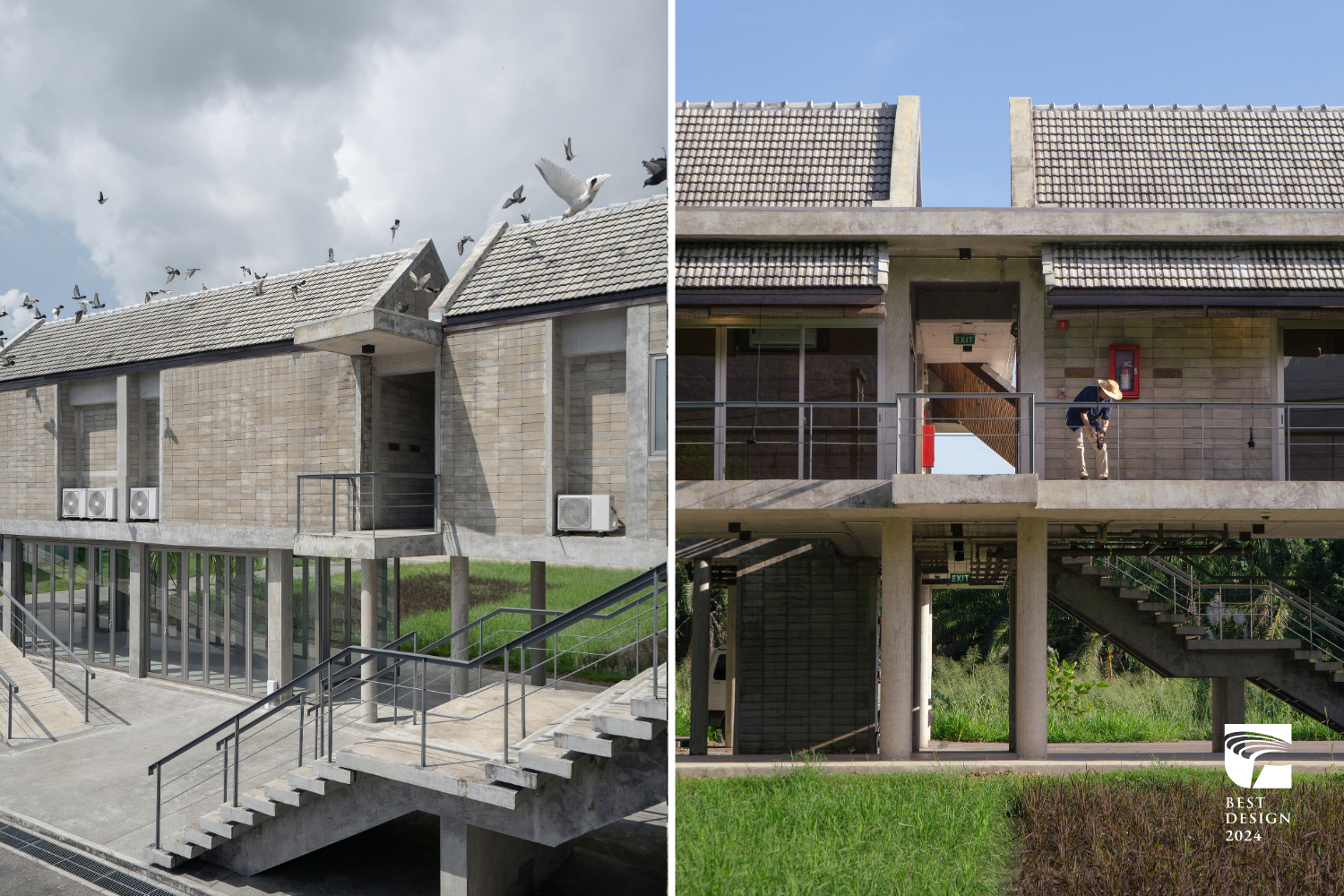
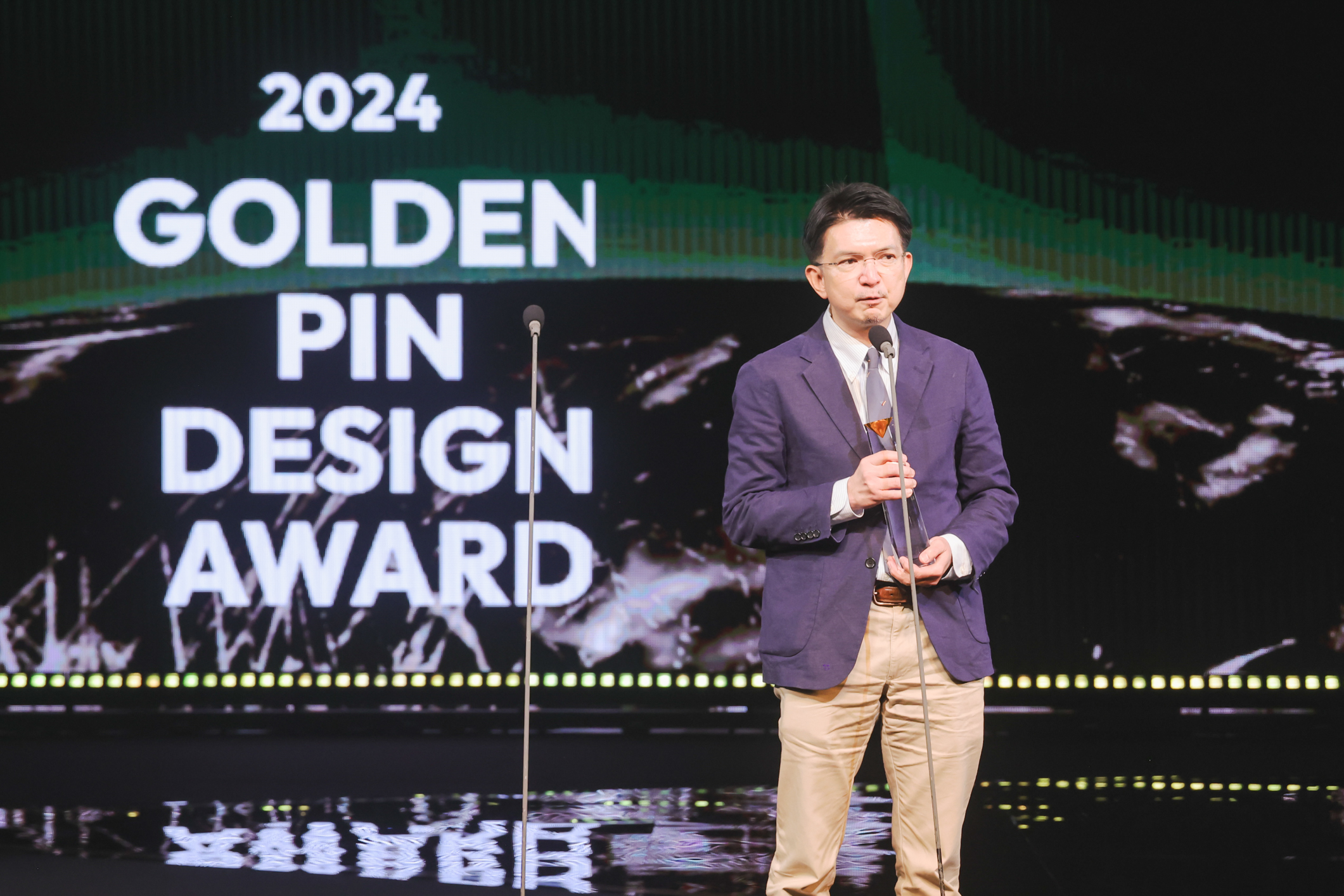 Thailand stood out among international winners, with projects such as “Harudot Chonburi by Nana Coffee Roasters” by IDIN Architects, showcasing brand identity through architectural expression; “N.L.N. Villa” by 1922 Architects, blending modern building techniques with traditional wisdom; and “Lanna Rice Research Center” for Chiang Mai University by Hanabitate Architects.
Thailand stood out among international winners, with projects such as “Harudot Chonburi by Nana Coffee Roasters” by IDIN Architects, showcasing brand identity through architectural expression; “N.L.N. Villa” by 1922 Architects, blending modern building techniques with traditional wisdom; and “Lanna Rice Research Center” for Chiang Mai University by Hanabitate Architects. 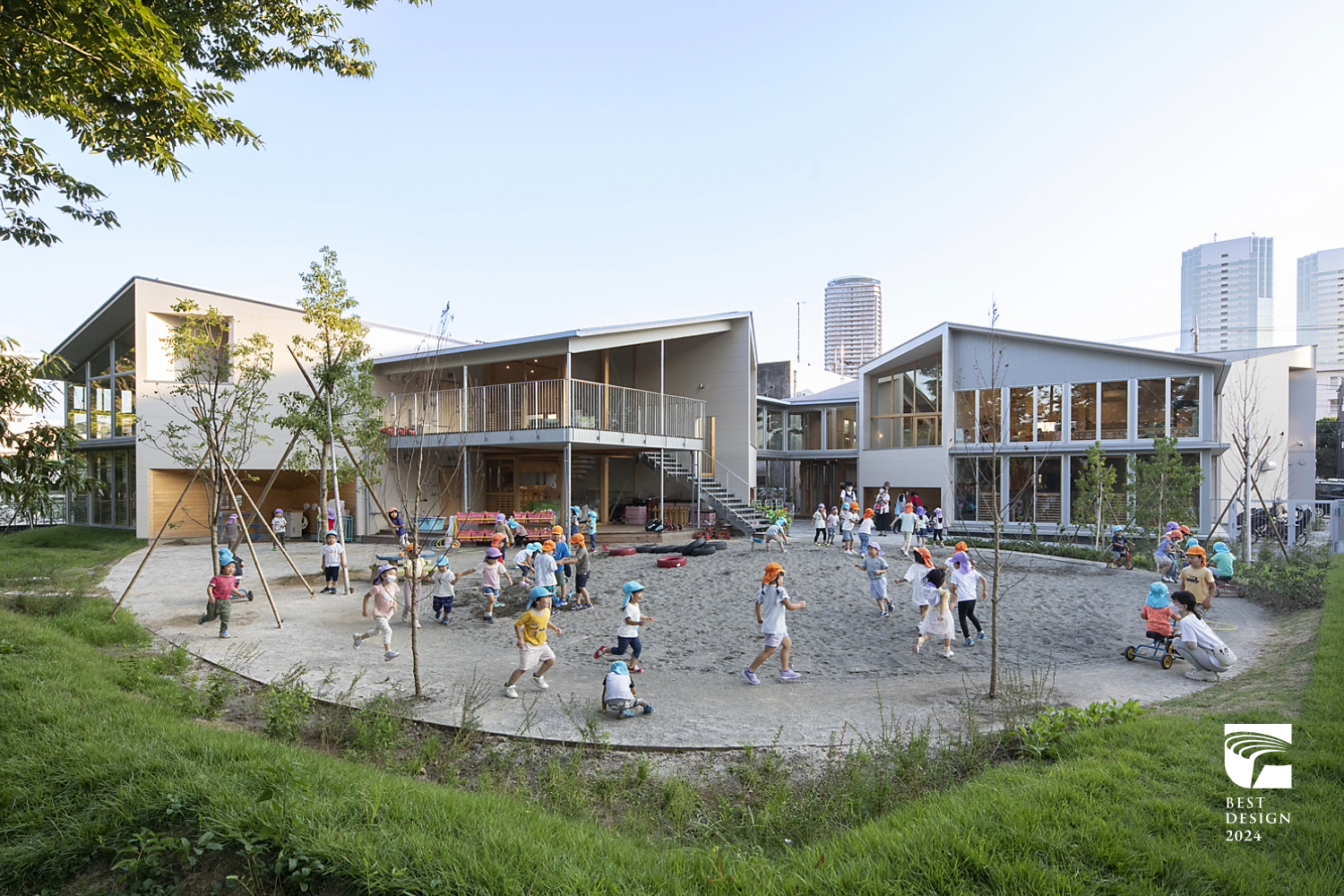

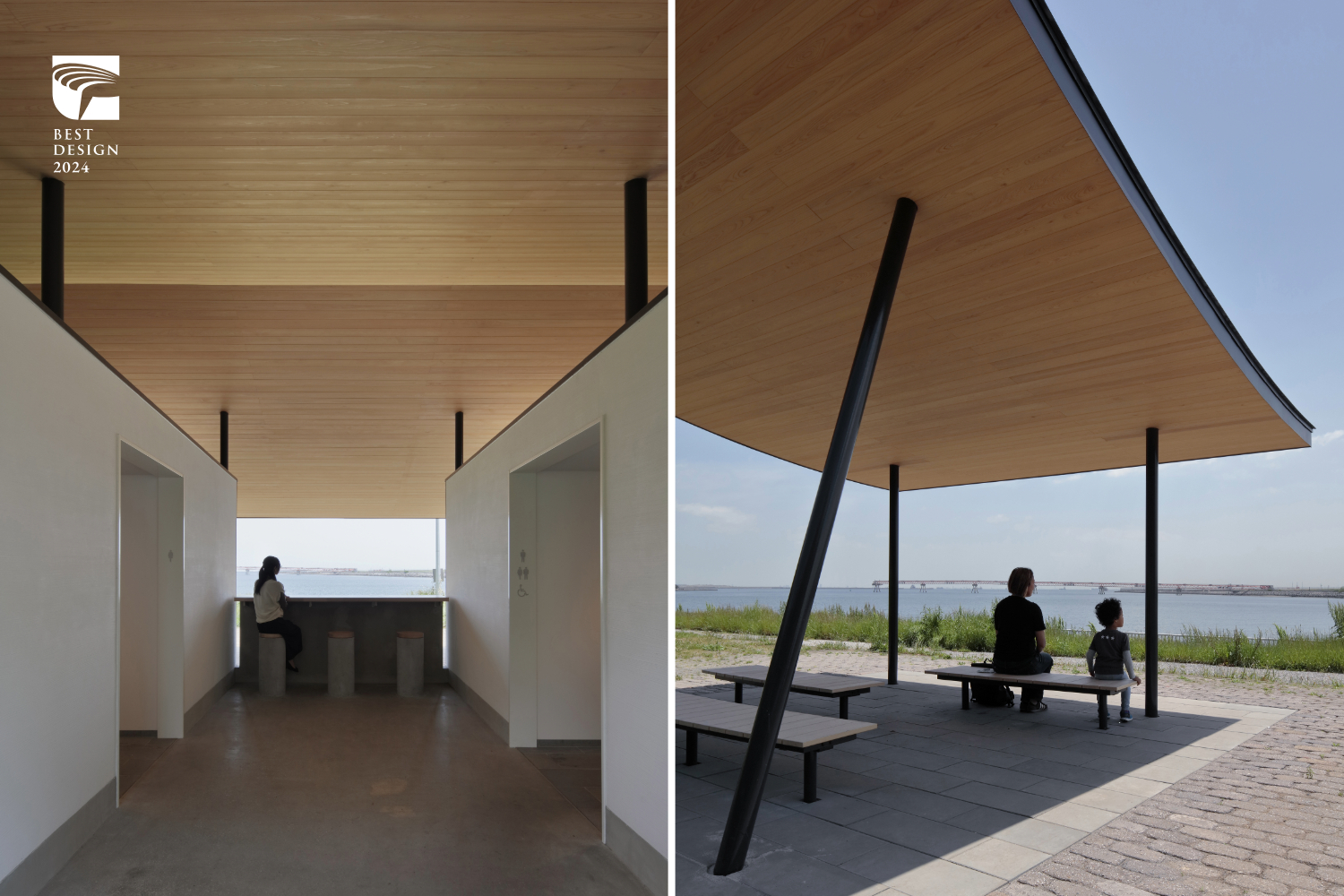
 Japan’s winners included “Kashimada Nursery” by TERRAIN Architects, and the project “Redefining Public Restroom in the Park” near Haneda Airport, designed by Masatoyo Ogasawara Architects. Other notable international winners included “Beijing City Library” by Norwegian firm Snøhetta, and “Gaia,” a timber academic building for Nanyang Technological University in Singapore, designed collaboratively by RSP Architects Planners and Engineers and Toyo Ito & Associates, Architects.
Japan’s winners included “Kashimada Nursery” by TERRAIN Architects, and the project “Redefining Public Restroom in the Park” near Haneda Airport, designed by Masatoyo Ogasawara Architects. Other notable international winners included “Beijing City Library” by Norwegian firm Snøhetta, and “Gaia,” a timber academic building for Nanyang Technological University in Singapore, designed collaboratively by RSP Architects Planners and Engineers and Toyo Ito & Associates, Architects.
- Integration Design Category
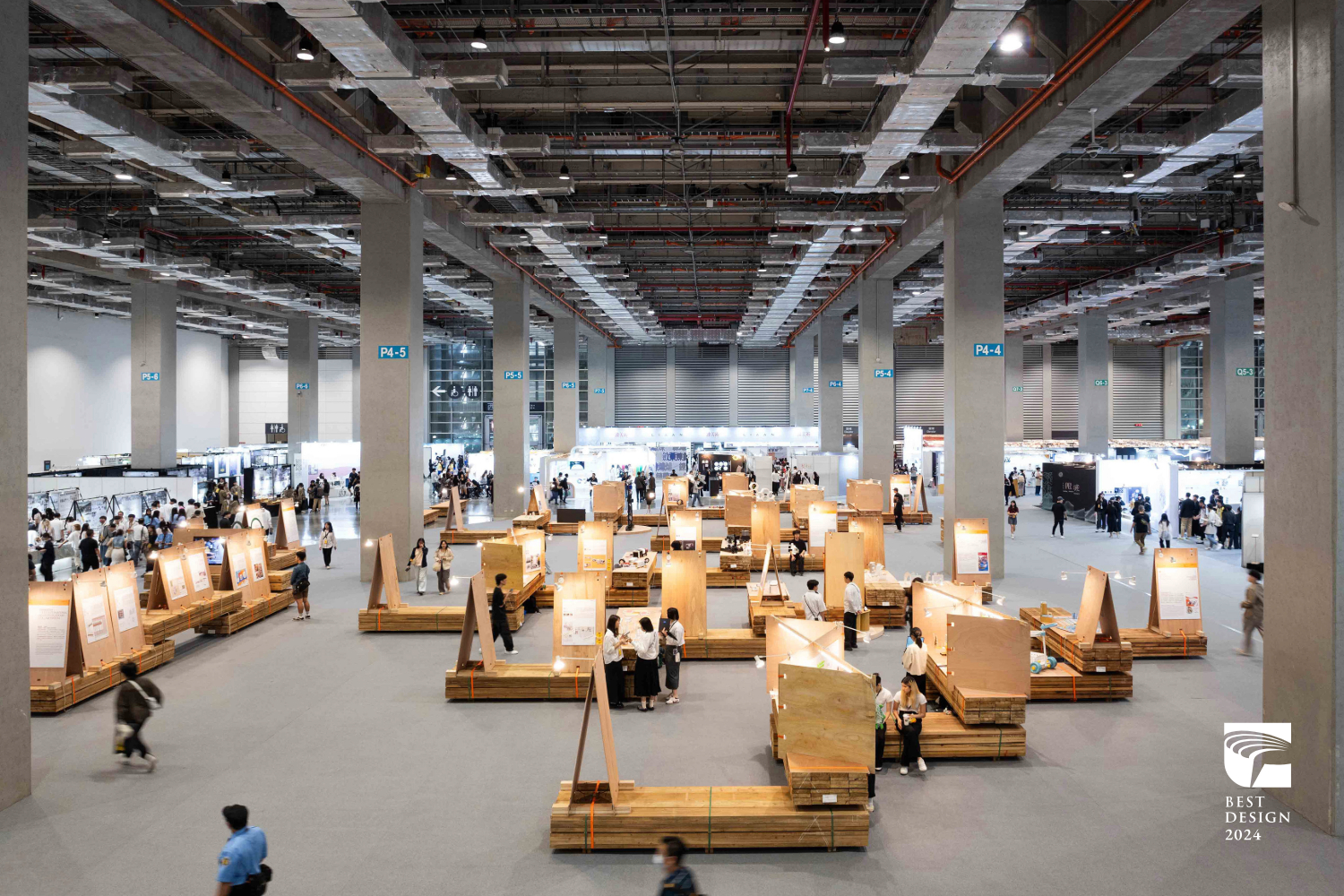
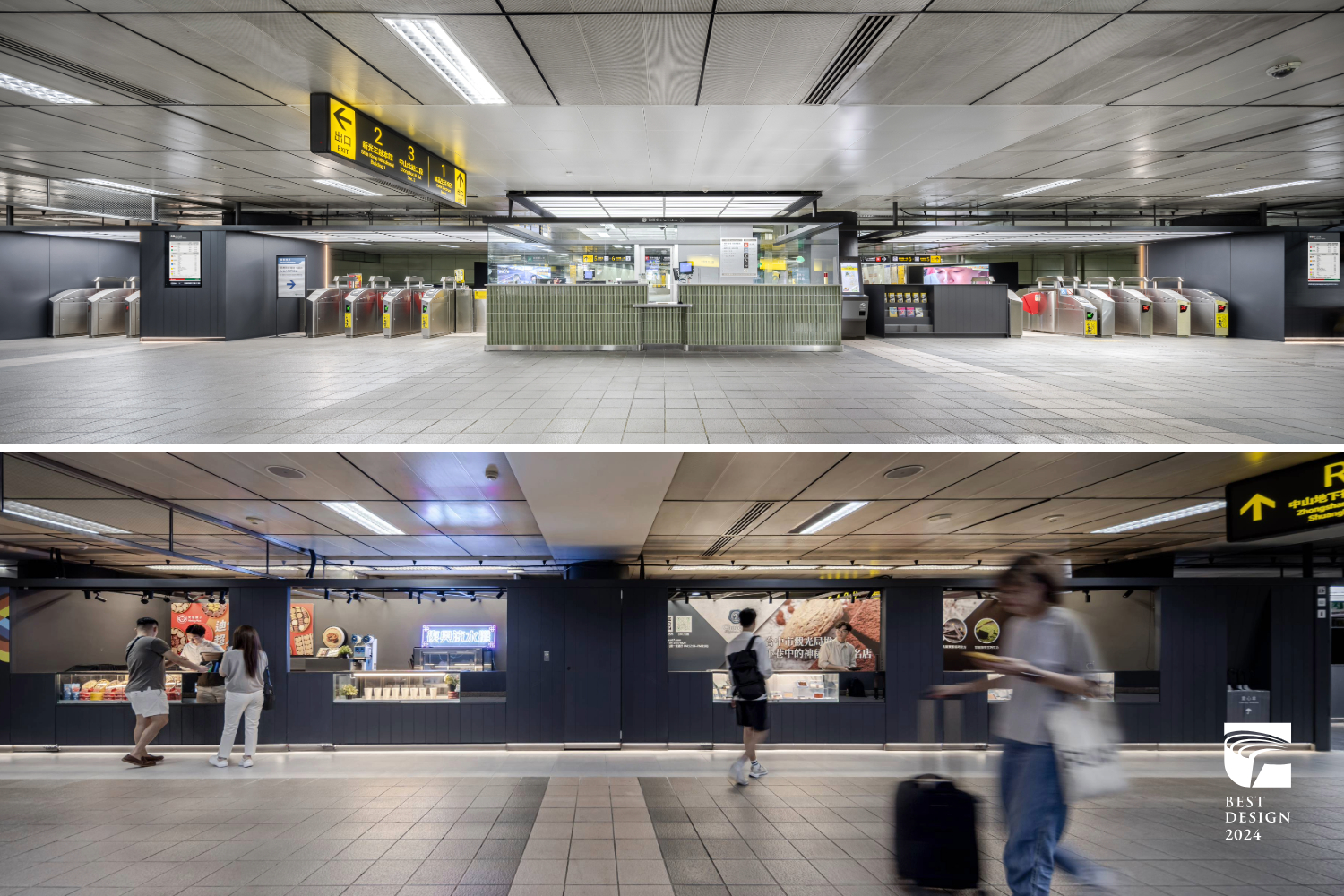
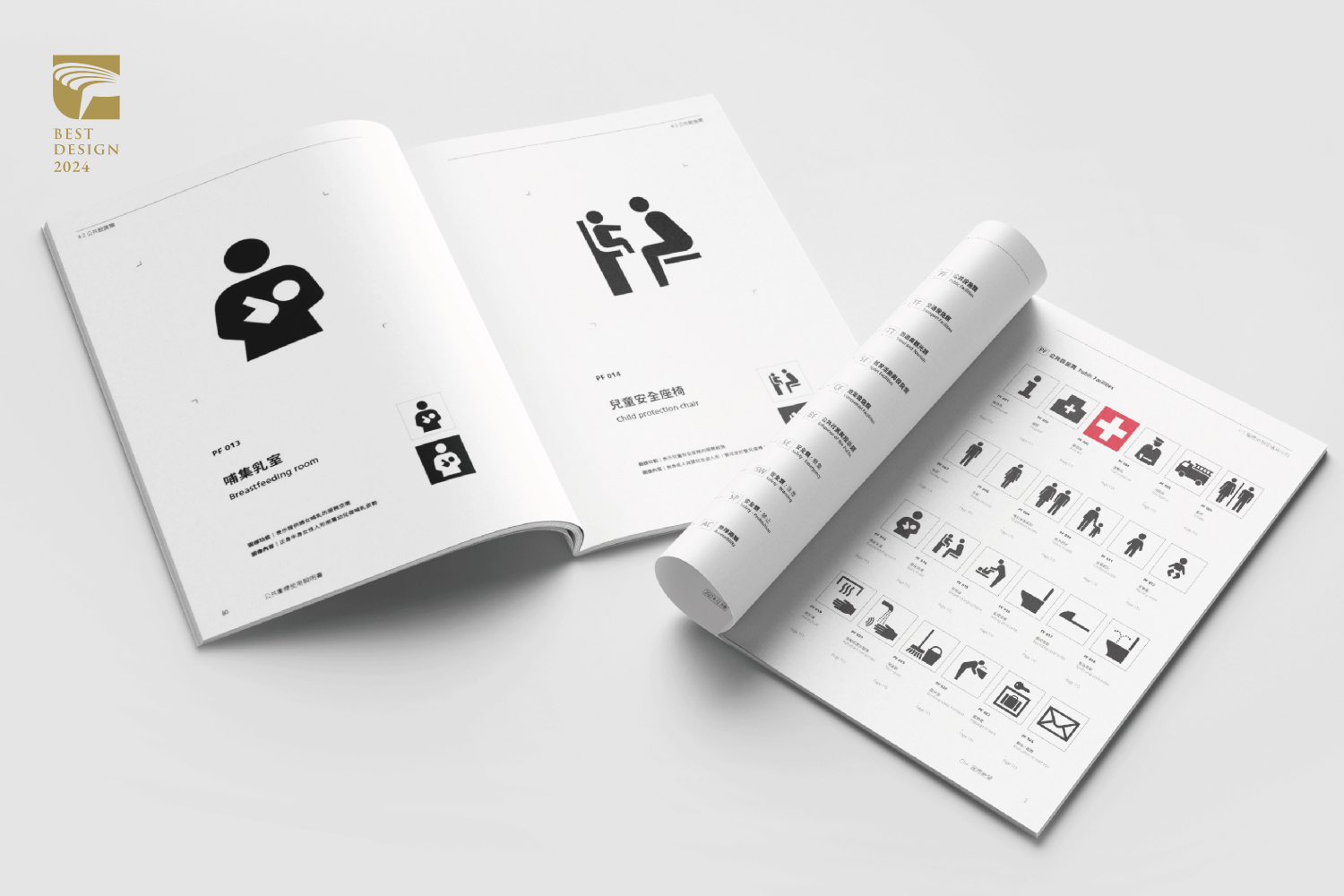 Taiwanese team hidden_domain design studio earned high praise for creating the exhibition space for the 2024 Young Designers’ Exhibition based on the “Borrowed Objects” concept. Their work not only aligned seamlessly with the exhibition theme “Beyond Sustainability” but also minimized single-use consumption, showcasing innovative and sustainable design practices. Other notable winners from Taiwan included the “Taipei MRT Zhongshan Station Redesign” and the “Taiwan Public Pictogram System (TPPS),” both demonstrating groundbreaking applications of design in public services.
Taiwanese team hidden_domain design studio earned high praise for creating the exhibition space for the 2024 Young Designers’ Exhibition based on the “Borrowed Objects” concept. Their work not only aligned seamlessly with the exhibition theme “Beyond Sustainability” but also minimized single-use consumption, showcasing innovative and sustainable design practices. Other notable winners from Taiwan included the “Taipei MRT Zhongshan Station Redesign” and the “Taiwan Public Pictogram System (TPPS),” both demonstrating groundbreaking applications of design in public services. 
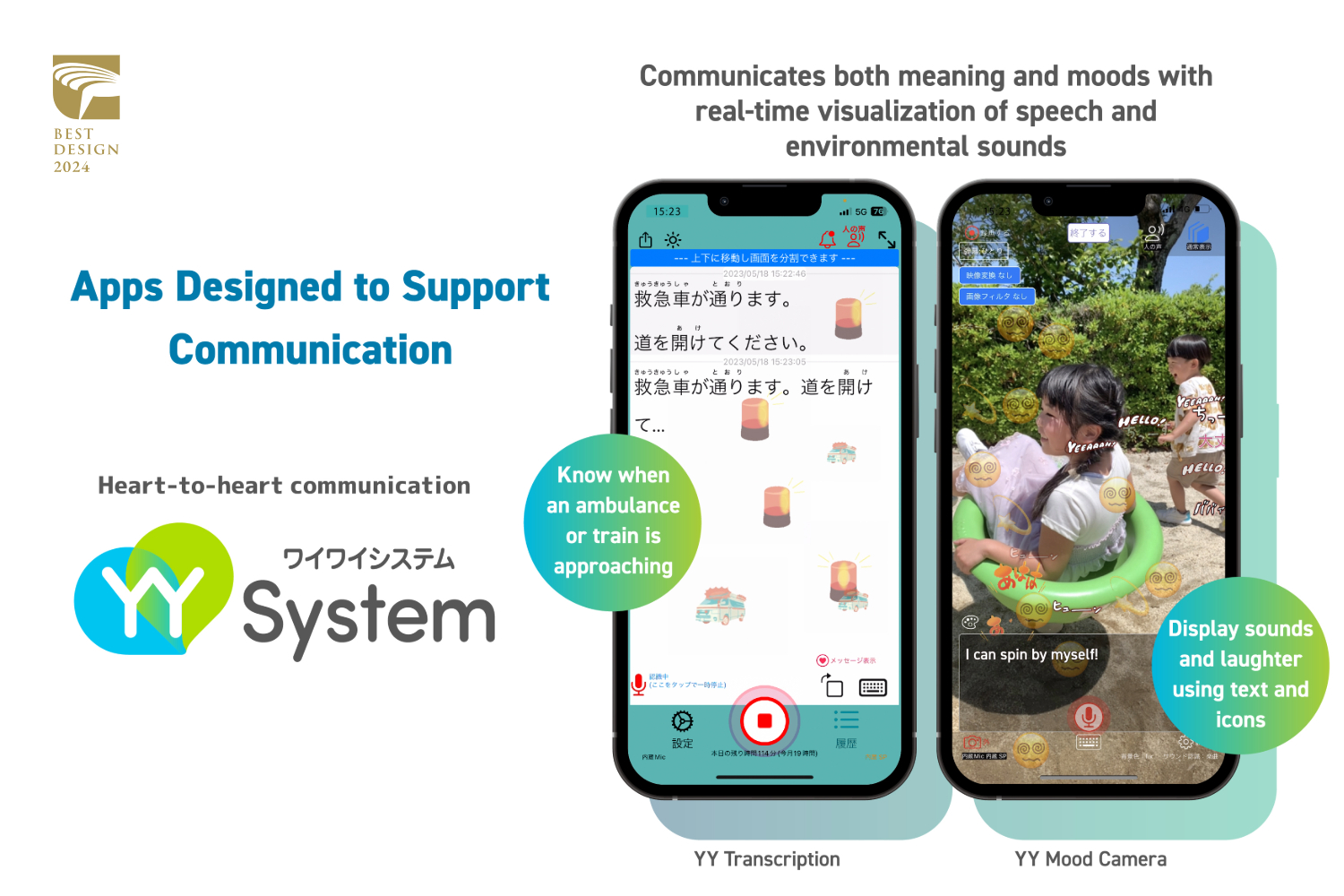
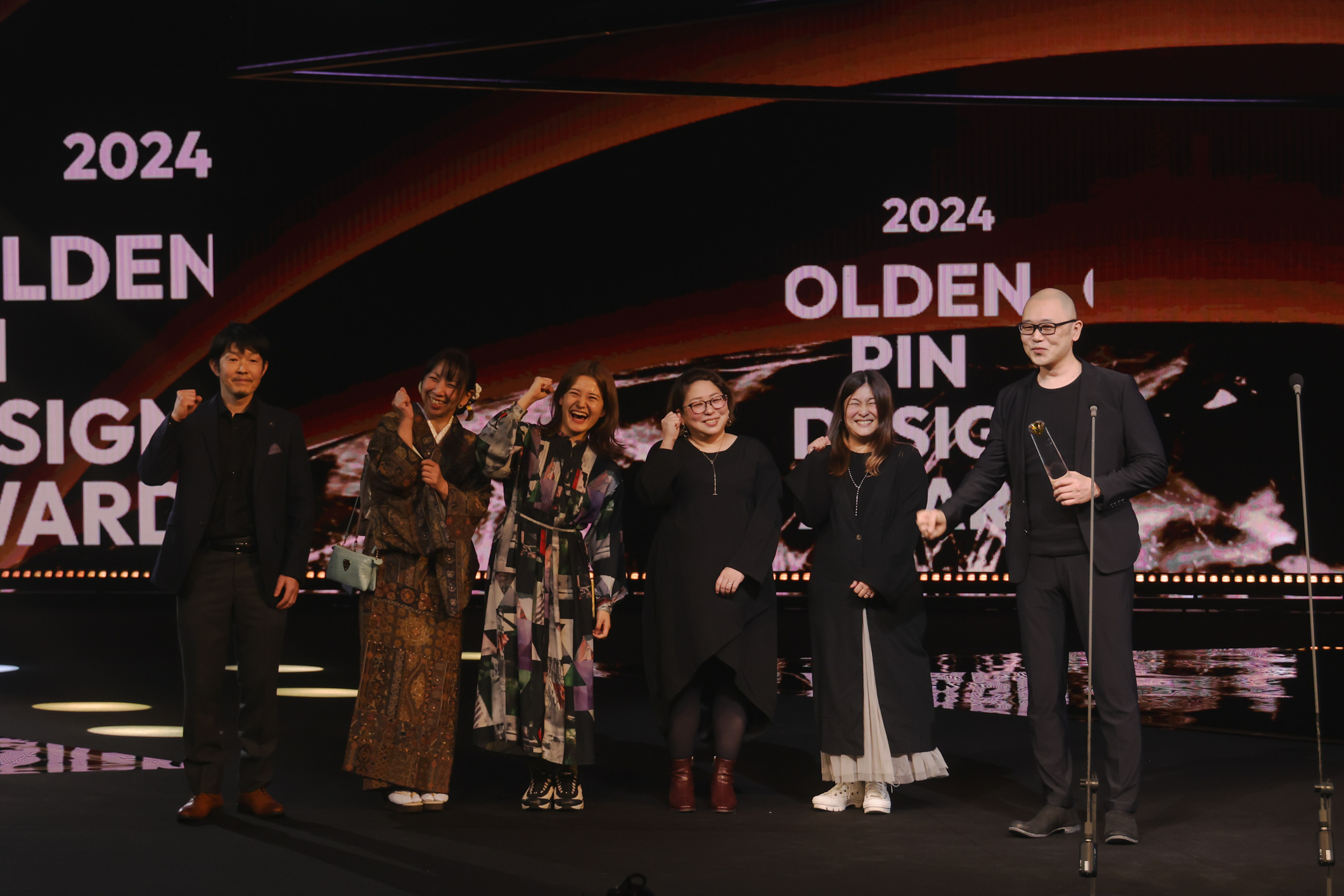 Japan’s winners included the “Organic Fertilizer “YAKUZEN” and Compost System Local Production for Local Consumption” by Kanazawa – Bio Laboratory, which advances soil regeneration, and “YYSystem,” an accessible communication app developed by AISIN CORPORATION specifically for hearing-impaired workers. Moreover, AISIN CORPORATION invited several hearing-impaired users—also co-developers of the app—to attend the award ceremony this time. Through the app’s real-time translation capabilities, they shared in the celebration, making this recognition all the more significant.
Japan’s winners included the “Organic Fertilizer “YAKUZEN” and Compost System Local Production for Local Consumption” by Kanazawa – Bio Laboratory, which advances soil regeneration, and “YYSystem,” an accessible communication app developed by AISIN CORPORATION specifically for hearing-impaired workers. Moreover, AISIN CORPORATION invited several hearing-impaired users—also co-developers of the app—to attend the award ceremony this time. Through the app’s real-time translation capabilities, they shared in the celebration, making this recognition all the more significant.
- Special Annual Award Winners
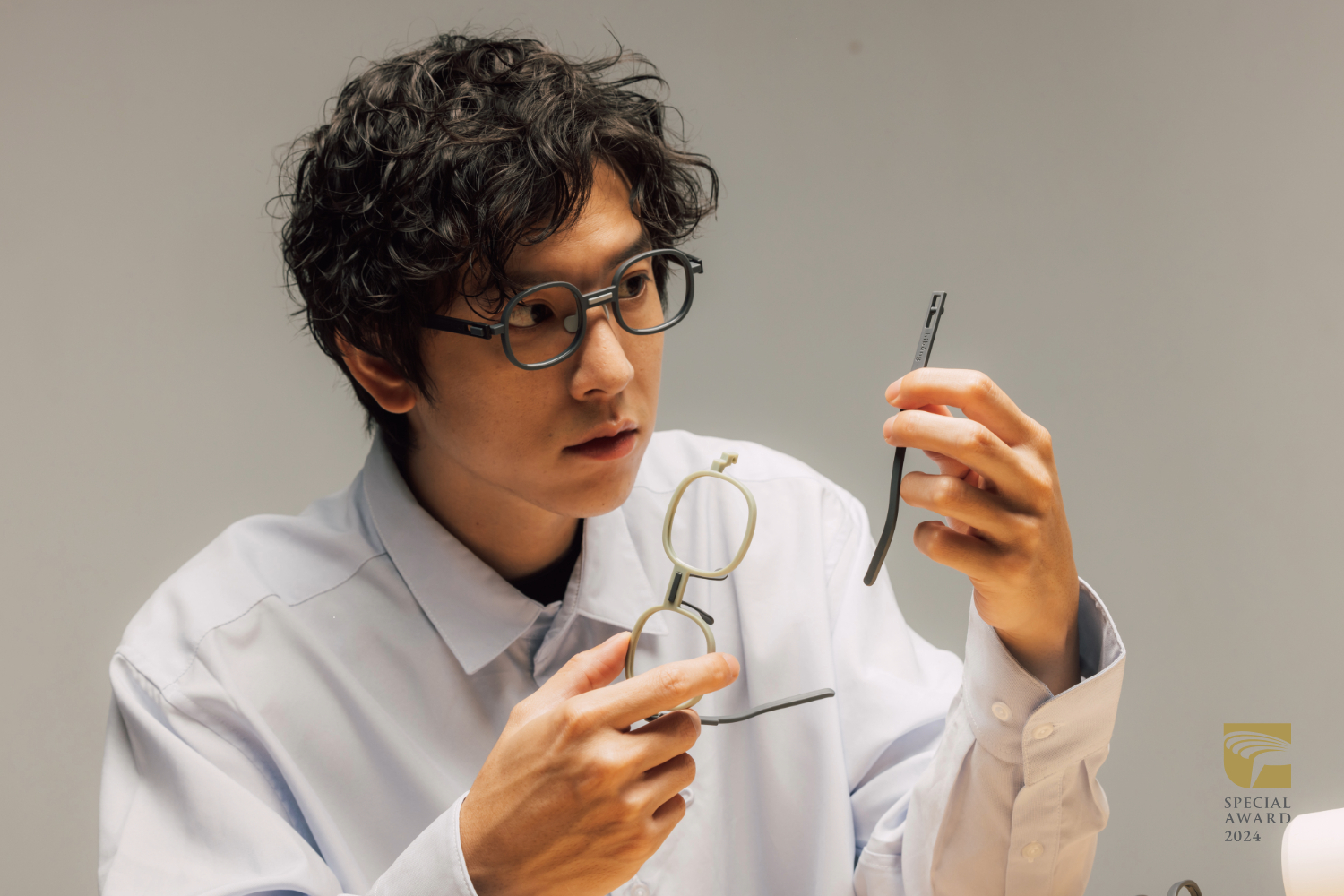
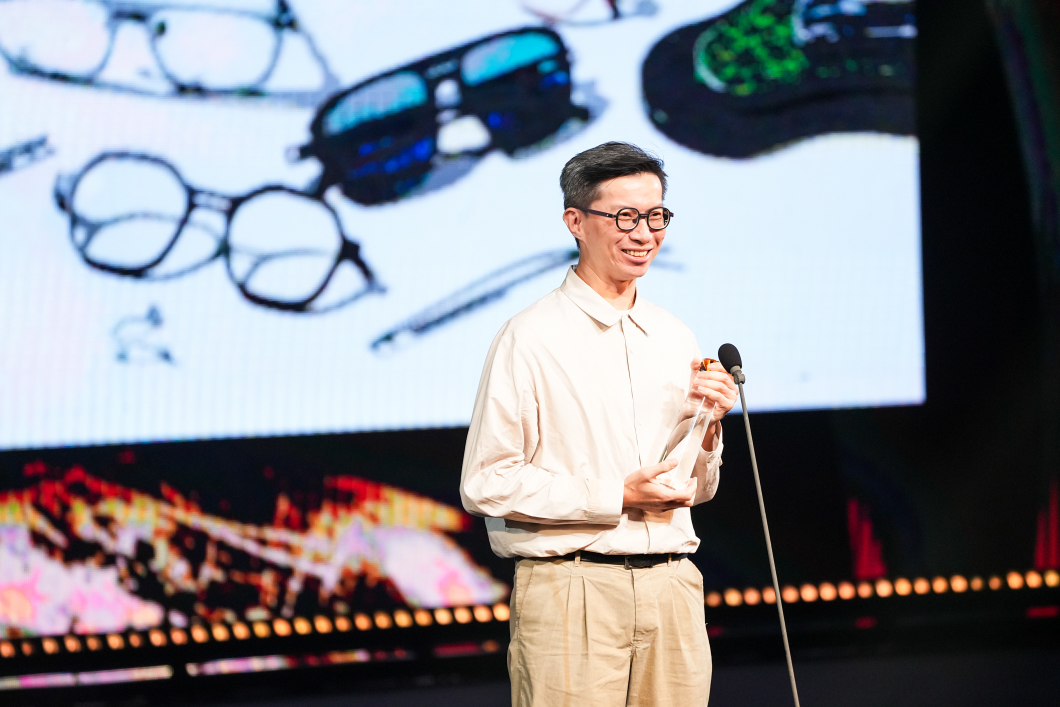 This year’s Special Annual Awards honored two projects that exemplify sustainability and social care. The first, “Hibāng Re-Fishing-Net Eyewear – Mountain Series” by Duolog Design LLC, showcases innovative use of discarded fishing nets to create screwless, interlocking eyewear. Paired with a recycling system, the design achieves a zero-waste goal, highlighting Taiwan’s prowess in sustainable design.
This year’s Special Annual Awards honored two projects that exemplify sustainability and social care. The first, “Hibāng Re-Fishing-Net Eyewear – Mountain Series” by Duolog Design LLC, showcases innovative use of discarded fishing nets to create screwless, interlocking eyewear. Paired with a recycling system, the design achieves a zero-waste goal, highlighting Taiwan’s prowess in sustainable design. 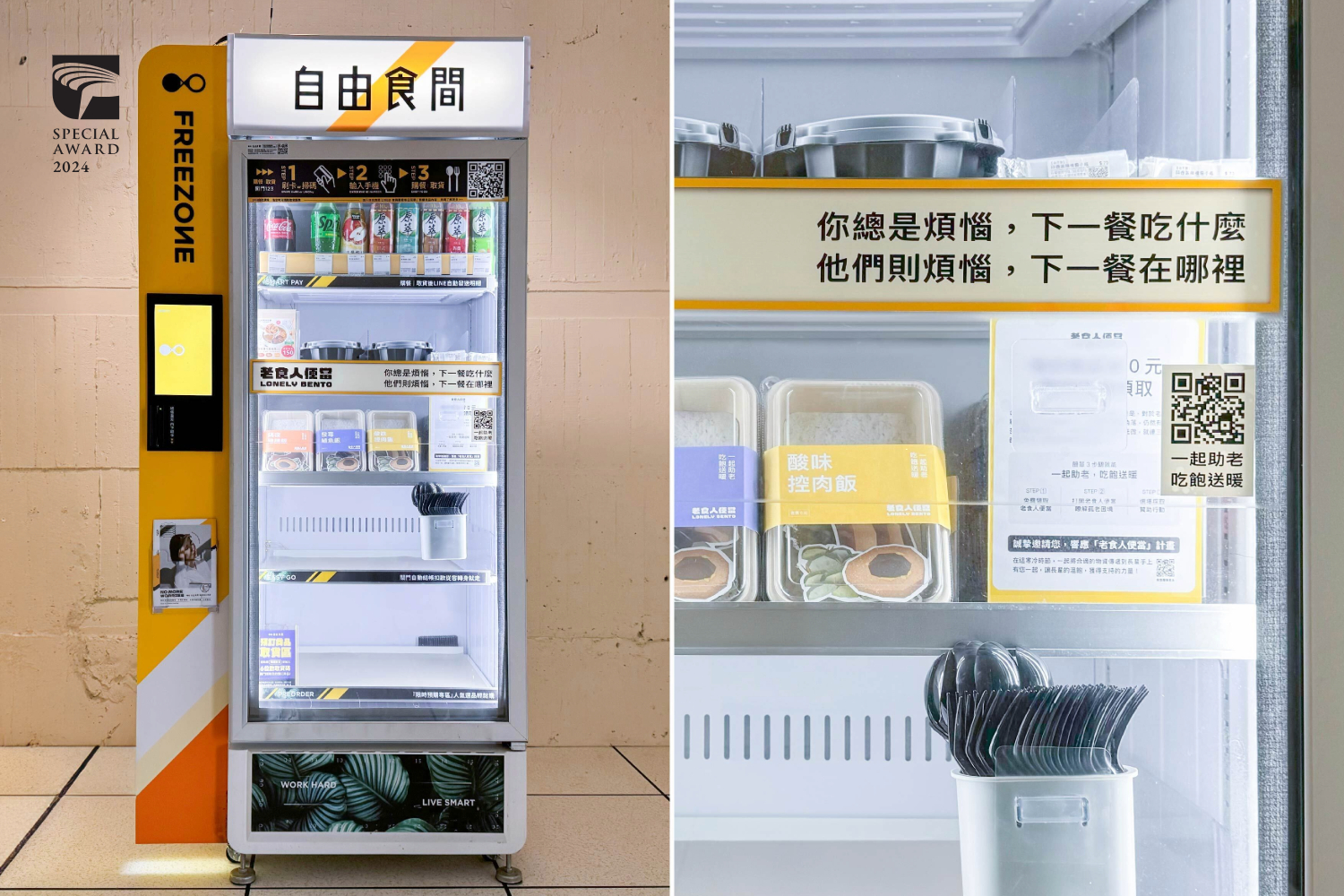
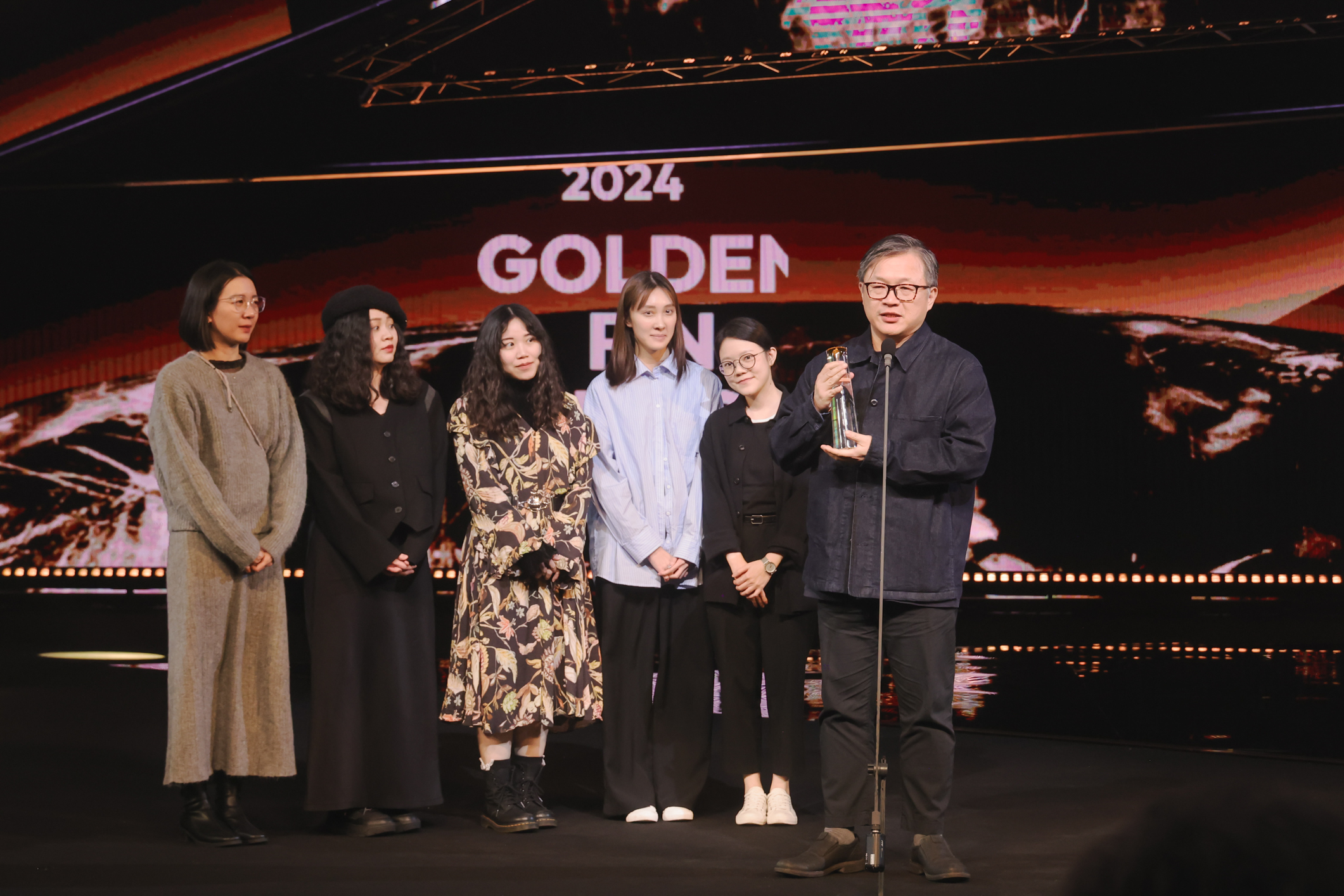 The second, “LONELY BENTO” (with “BENTO” meaning meal box in Taiwanese), is a collaboration between Bremen Digital Creative and the Silvergate Charity. Through engaging experiential design, the project raises awareness of the dietary challenges faced by elderly individuals living alone, inspiring public support and donations. This project exemplifies the transformative role of design in addressing societal issues. Golden Pin Concept Design Award 2024: Innovative Proposals in Ventilation, Rural Aesthetic Education, and Urban Revitalization Take the Spotlight The 2024 Golden Pin Concept Design Award highlighted exceptional creativity, selecting 47 entries during the secondary selection to receive the Design Mark. From these, six finalists advanced to compete for the coveted “Best Design Award,” with three projects ultimately claiming the top honor. Each winning project earned a cash prize of NT$300,000, recognized for its innovative approach.
The second, “LONELY BENTO” (with “BENTO” meaning meal box in Taiwanese), is a collaboration between Bremen Digital Creative and the Silvergate Charity. Through engaging experiential design, the project raises awareness of the dietary challenges faced by elderly individuals living alone, inspiring public support and donations. This project exemplifies the transformative role of design in addressing societal issues. Golden Pin Concept Design Award 2024: Innovative Proposals in Ventilation, Rural Aesthetic Education, and Urban Revitalization Take the Spotlight The 2024 Golden Pin Concept Design Award highlighted exceptional creativity, selecting 47 entries during the secondary selection to receive the Design Mark. From these, six finalists advanced to compete for the coveted “Best Design Award,” with three projects ultimately claiming the top honor. Each winning project earned a cash prize of NT$300,000, recognized for its innovative approach. 
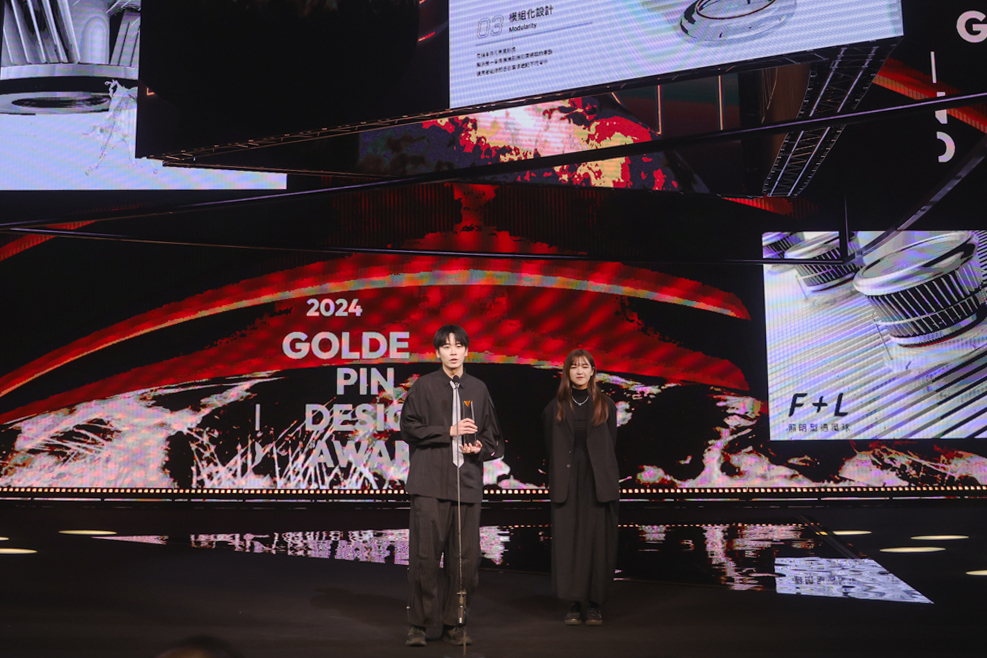 The “F+L Lighting Ventilation Balls,” designed by Zi-Yu Chou and Ming-Zhi Hsieh, reinvents the traditional ventilator with an innovative structure that enhances its functionality and value. The project impressed the jury with its robust research and strong market potential, earning top honors.
The “F+L Lighting Ventilation Balls,” designed by Zi-Yu Chou and Ming-Zhi Hsieh, reinvents the traditional ventilator with an innovative structure that enhances its functionality and value. The project impressed the jury with its robust research and strong market potential, earning top honors. 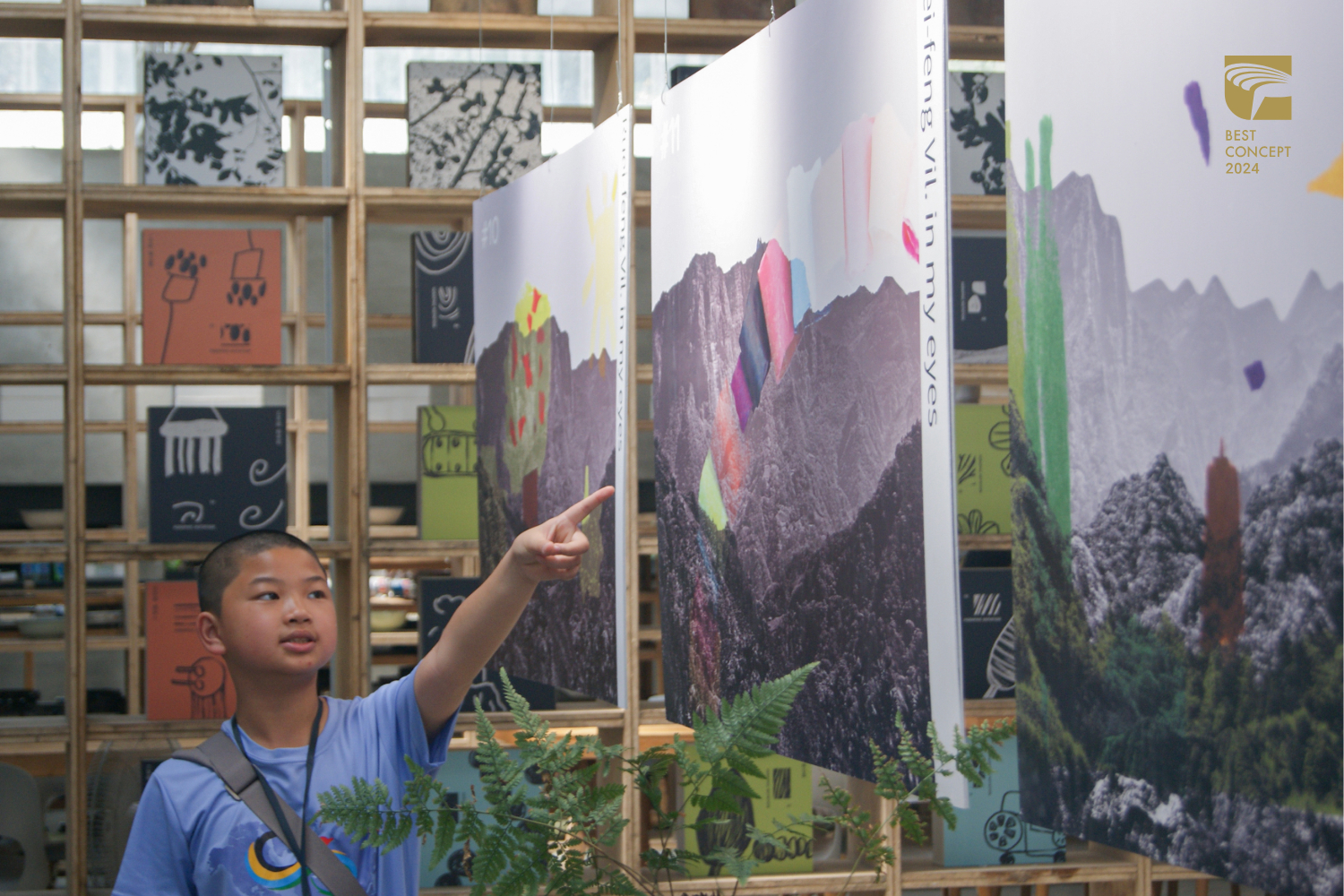 “Soundscape of No.19,” a proposal by Cai-Yan Wu, Meng-Hsuan Wang and Liang-Yu Chen, integrates the local culture of Meishan, Chiayi, into an aesthetic education program for elementary school students. The thoughtful and passionate approach to cultivating creativity in rural areas garnered high praise from the Jurors.
“Soundscape of No.19,” a proposal by Cai-Yan Wu, Meng-Hsuan Wang and Liang-Yu Chen, integrates the local culture of Meishan, Chiayi, into an aesthetic education program for elementary school students. The thoughtful and passionate approach to cultivating creativity in rural areas garnered high praise from the Jurors. 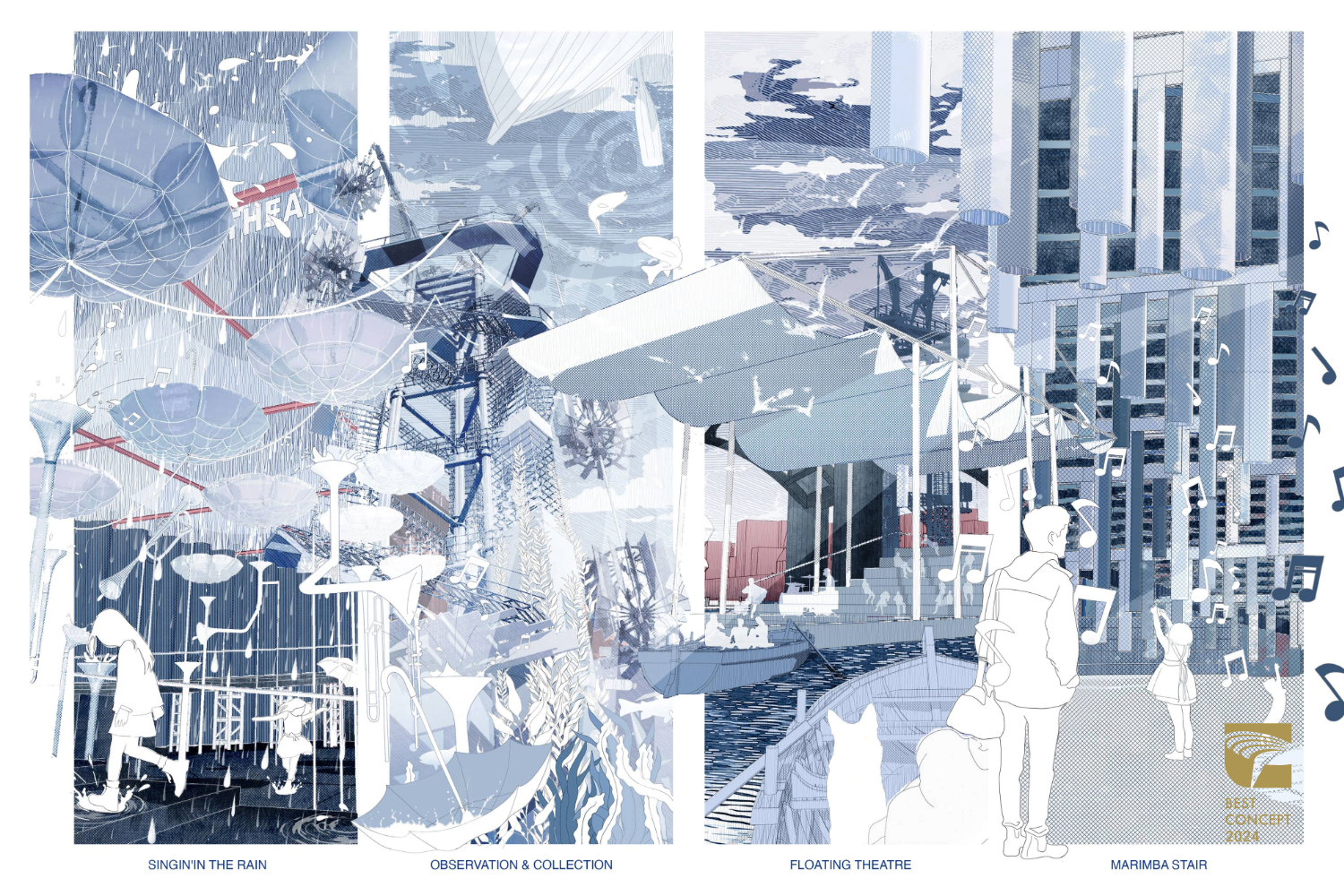 Xinyue Geng’s “Let’s Play! – A Journey of Regeneration and Reconnection in Glasgow” aims to transform an abandoned viaduct in Glasgow, UK, into a cultural hub. The proposal paints an inspiring vision for revitalizing local heritage through innovative and site-specific ideas, blending imagination with deep research into the city’s needs. Discover the Winners at the Golden Pin Design Award Exhibition The full list of winners for the 2024 Golden Pin Design Award and Golden Pin Concept Design Award’s “Best Design Award” is now available on the official website (www.goldenpin.org.tw/en). In addition, the 2024 Golden Pin Design Award Exhibition, featuring this year’s award-winning works, is currently on display at the Taiwan Design Museum in Taipei’s Songshan Cultural and Creative Park. The exhibition runs until April 6th, 2025. Don’t miss the chance to experience these inspiring creations!
Xinyue Geng’s “Let’s Play! – A Journey of Regeneration and Reconnection in Glasgow” aims to transform an abandoned viaduct in Glasgow, UK, into a cultural hub. The proposal paints an inspiring vision for revitalizing local heritage through innovative and site-specific ideas, blending imagination with deep research into the city’s needs. Discover the Winners at the Golden Pin Design Award Exhibition The full list of winners for the 2024 Golden Pin Design Award and Golden Pin Concept Design Award’s “Best Design Award” is now available on the official website (www.goldenpin.org.tw/en). In addition, the 2024 Golden Pin Design Award Exhibition, featuring this year’s award-winning works, is currently on display at the Taiwan Design Museum in Taipei’s Songshan Cultural and Creative Park. The exhibition runs until April 6th, 2025. Don’t miss the chance to experience these inspiring creations!
For the latest news on the Golden Pin Design Award, visit:
Official Website: www.goldenpin.org.tw/en
Facebook: GoldenPinDesign
Instagram: GoldenPinDesign
X/Twitter: GoldenPinDesign
YouTube: GoldenPinDesign
Weibo: GoldenPinDesign
WeChat: 金点设计奖
International Media Enquiries
Golden Pin Design Award Team Taiwan Design Research Institute (TDRI)
Zoe Lo, Press Coordinator press.gpaward@tdri.org.tw
